“Sports has the power to make you a champion in anything you choose to do in life.”
Sport can make you immortal. Your name can ring through eternity heralding all you have achieved. It can leave a legacy to inspire others that no amount of money could buy. The greatness you accomplish reverberates further than you could ever imagine. It’s not just in the arena of your chosen sport where your impact is felt. It goes far beyond that.
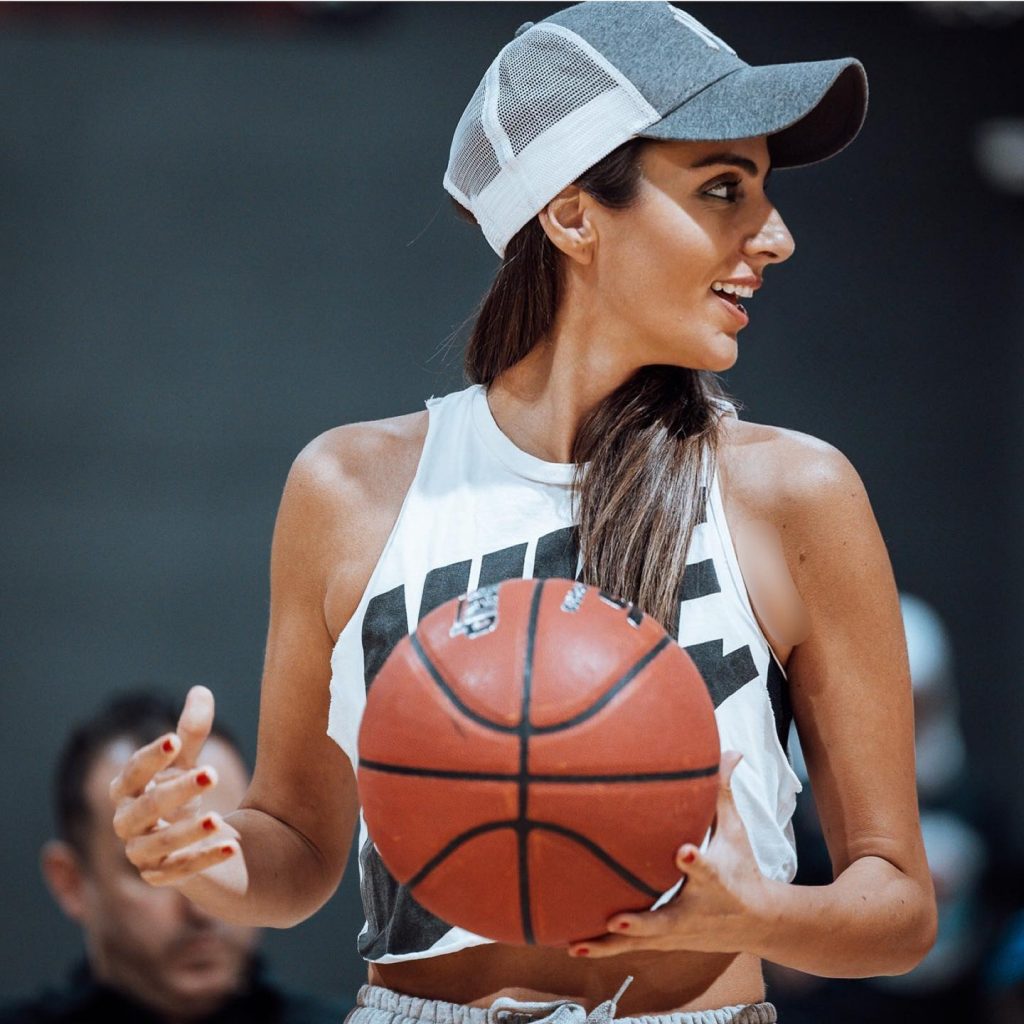
Nathalie Mamo’s achievements in basketball will never be forgotten. They will be passed down from generation to generation and her story will be told. It will show others the realms of what is possible in life.
Born in Lebanon, Nathalie Mamo made history as the first Arab basketball player to enter the first division at the age of just 11, and by the age of 13, she was playing for the National Team.
Her career would soon see her propelled to captaining the Women’s National Team, where she would become the youngest player to secure an Arab Championship and lead the team from Division B to A in Asia.
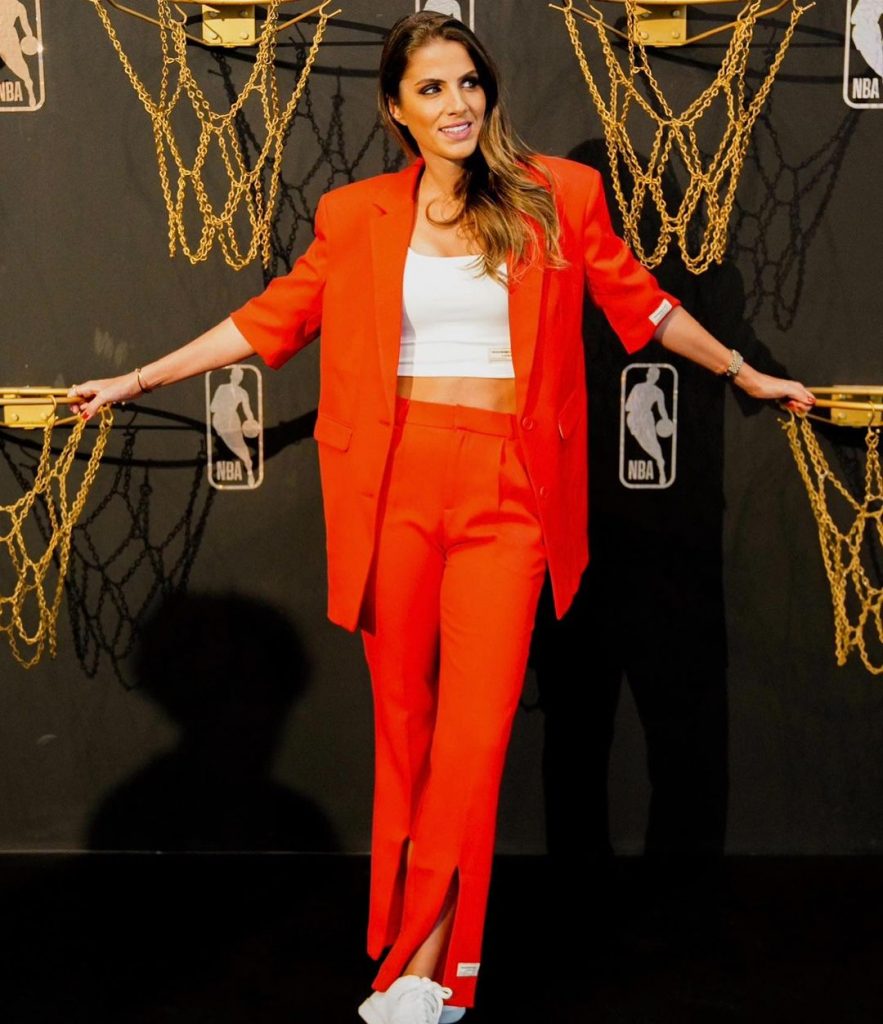
In a decorated career, Nathalie would go on to shatter and slam dunk one barrier after another. Winning over 65 titles and cementing her legacy as one of Lebanon’s most decorated athletes.
In 2012, at the age of 26, Nathalie retired from her basketball career to embark on a new challenge. Her journey from the court to the screen began with MTV Lebanon, where she became Lebanon’s first female sports news presenter. This marked the start of a groundbreaking adventure in sports media that has been on a relentless trajectory ever since.
The next step on Nathalie’s journey would take her to Sky News Arabia, where for five years, she commanded the attention of audiences and provided the region with prime access to international sports events.
Nathalie’s talent and ability have not gone unnoticed either and in 2021, she was notably honoured as the UAE’s Sports Media Personality of the Year.
She has rubbed shoulders with basketball luminaries such as Vince Carter, Shaquille O’Neal, Kareem Abdul Jabbar, and Gary Payton as well as legends from the game of football, Maradona, Ronaldo, Ronaldinho, Kaka, Xavi Hernandez, and Cristiano Ronaldo to name a few. She is also currently the face of WWE for the region.
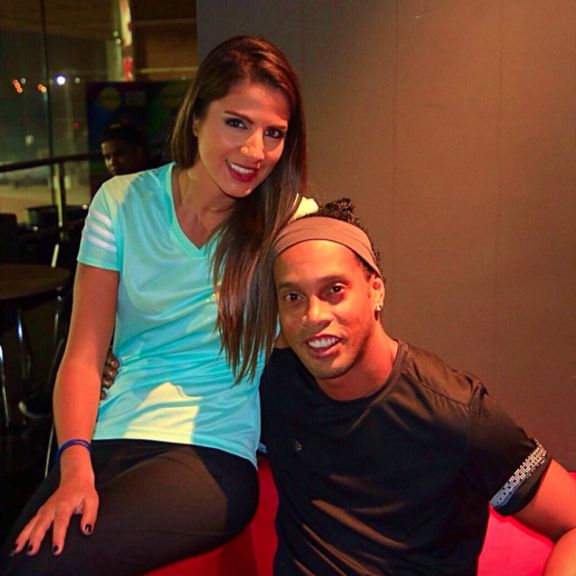
“If I look back at my life so far,” Nathalie says, “I would have never thought that one day I’m going to be this person on stage presenting all these big shows or working with the NBA or with the WWE or launching the Official World Cup Match Ball in Qatar.”
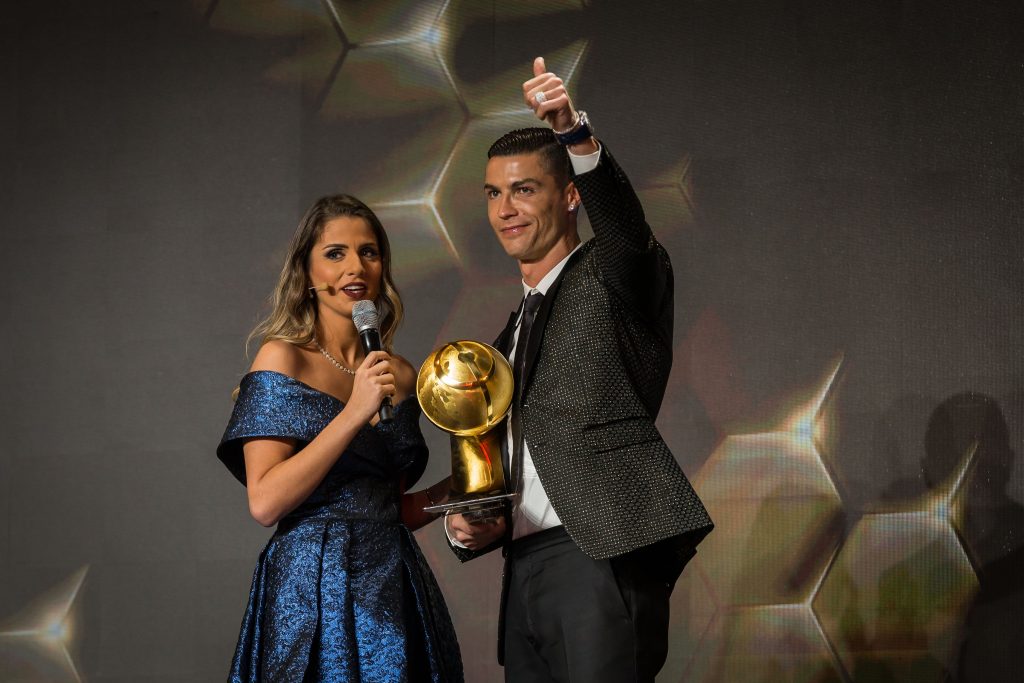
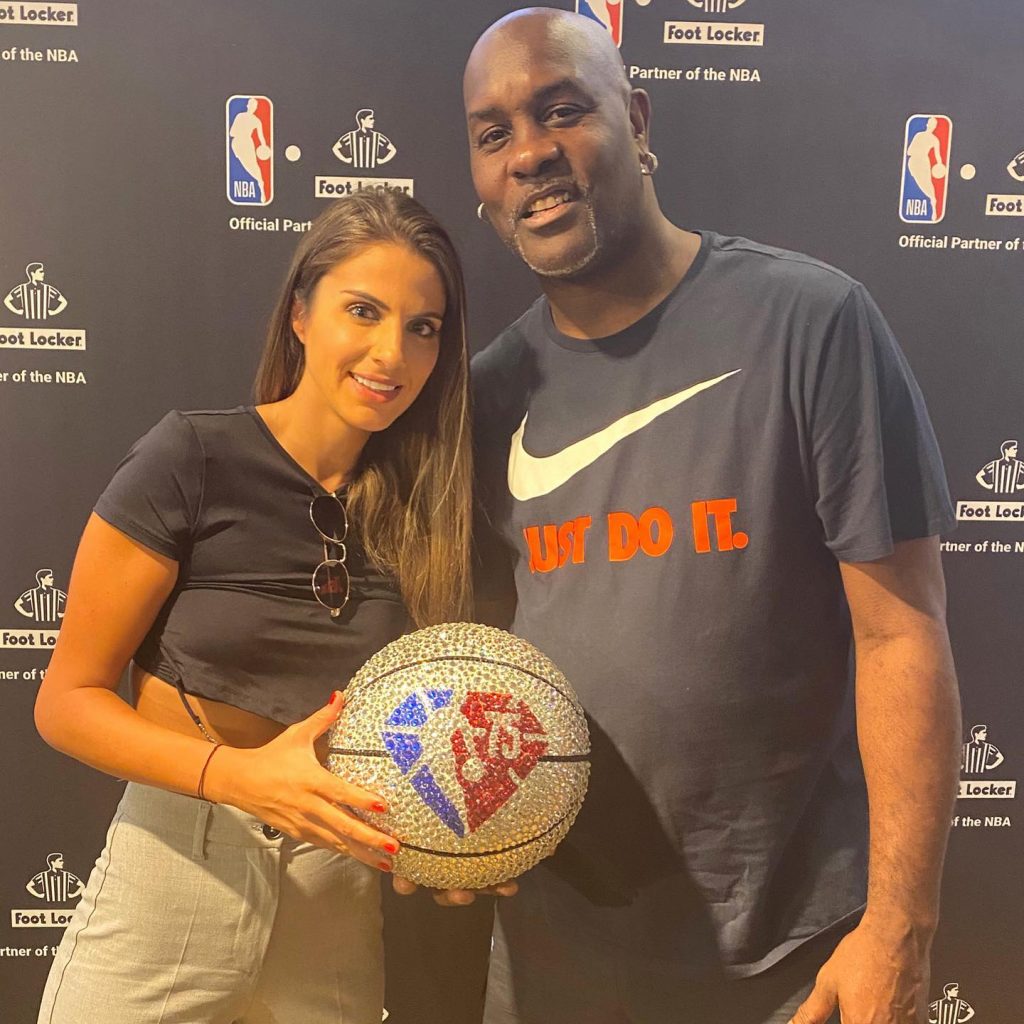
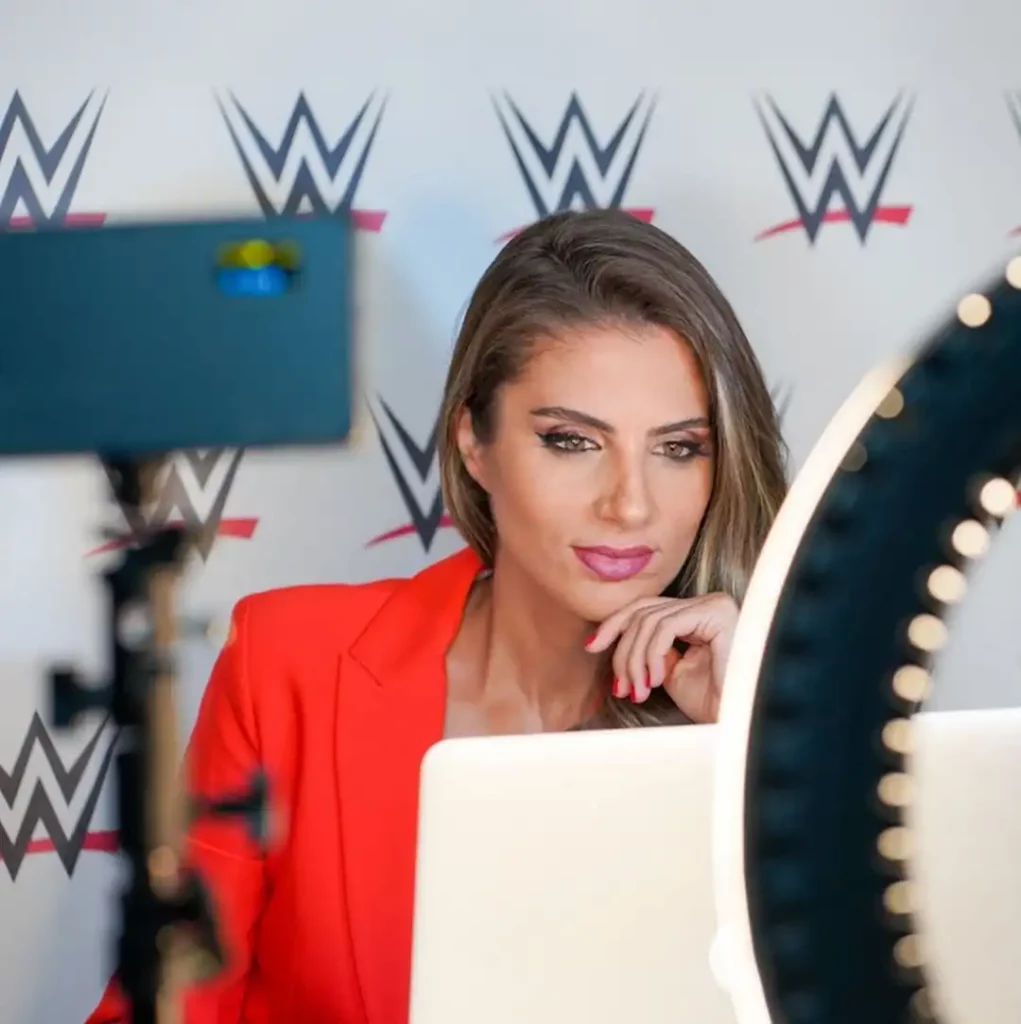
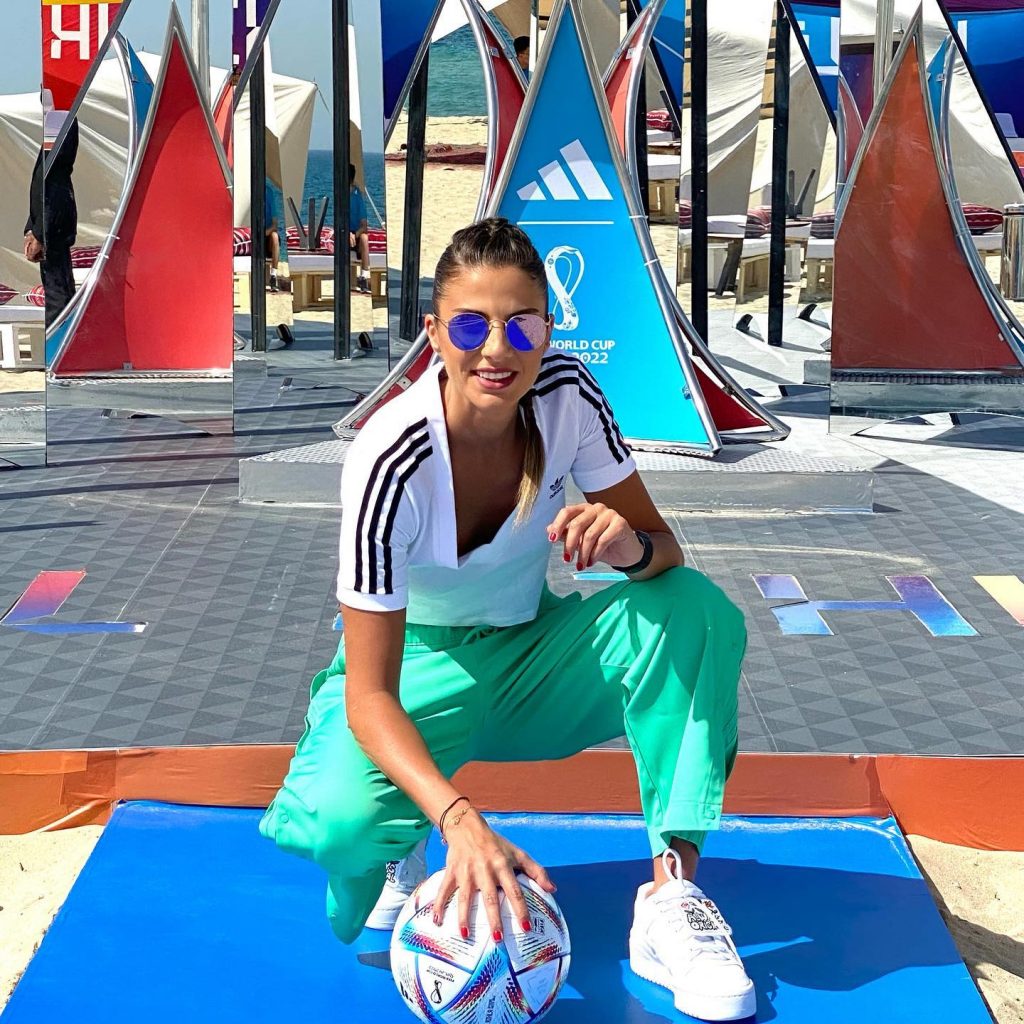
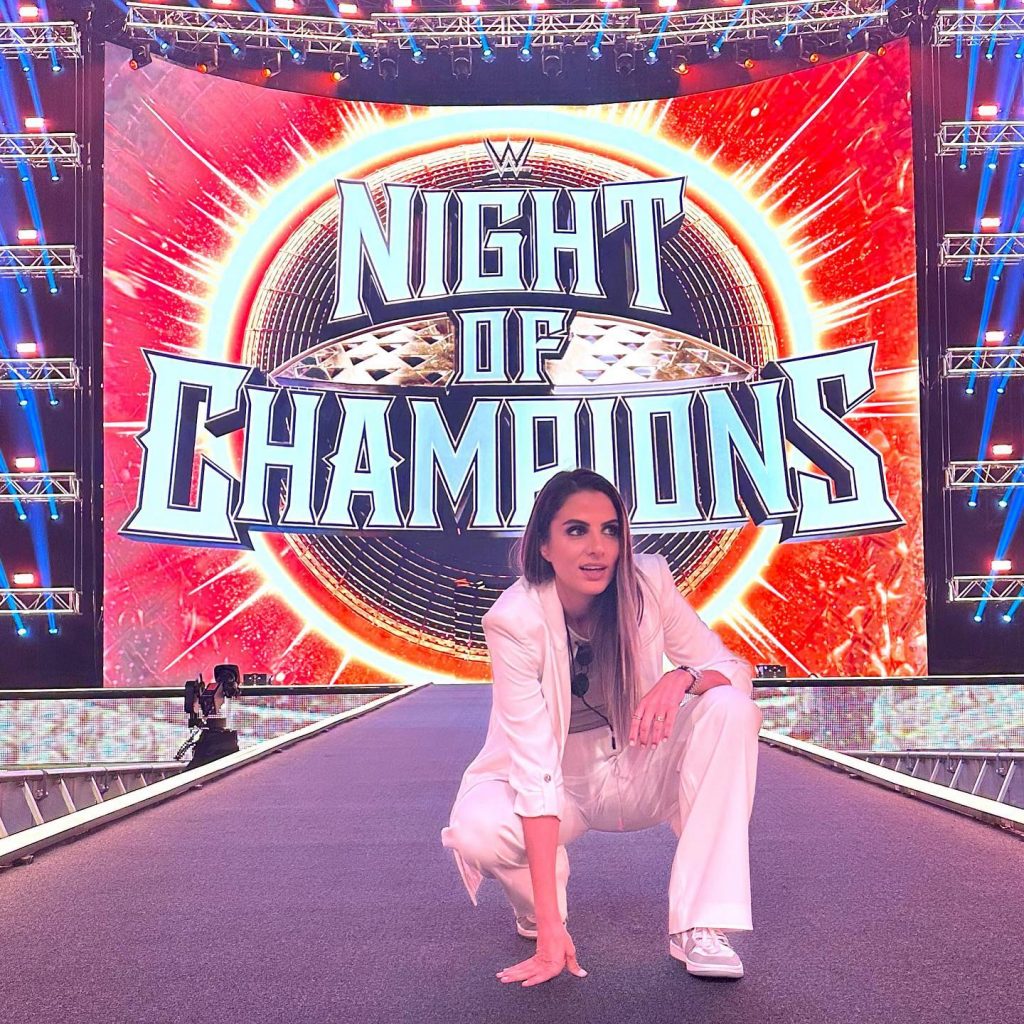
Nathalie’s accomplishments are no accident. They were born out of hard work and her exploits have changed the opinion and perception of women in sports across the United Arab Emirates and beyond, leading the way in inspiring a generation of women.
She has no intention of stopping yet either, “I would love to one day host the FIFA Awards or host the Ballon d’Or, but I’m so thankful for all the opportunities I’ve had. I used to dream of working for the NBA, and the World Cup and honestly I thank God for all the doors that were opened for me and all the opportunities I’ve had in this country.
But her career on the court taught her about dedication, discipline and desire and instilled her with a steel mentality, showing her what was possible when she gave everything there was to give.
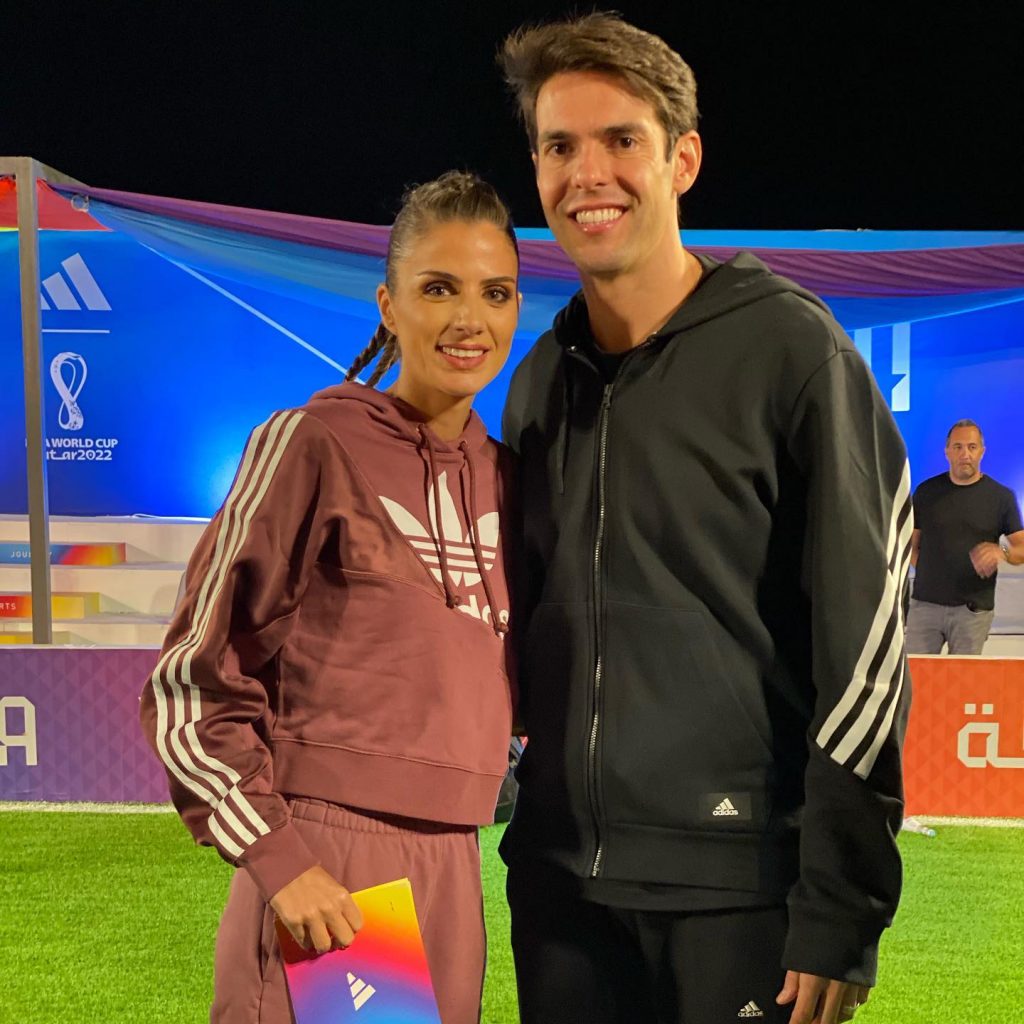
Nathalie’s daily life revolves around sports, whether she’s on or off camera. There is a passion for it which runs wildly through her veins, and her enthusiasm and love for it is contagious, as is her thirst and appetite to extract every last drop out of life.
“I’ve recently found a new passion for Padel. So I’ve been playing a lot of that lately. I’m still somebody who works out a lot.
I’ve also recently opened a sports collectables shop in Dubai, which is the first sports collectables shop I think in the Middle East. It’s all about rare memorabilia and signed jerseys, shoes, balls, and cards. So I’m always busy and it’s always around sports.”
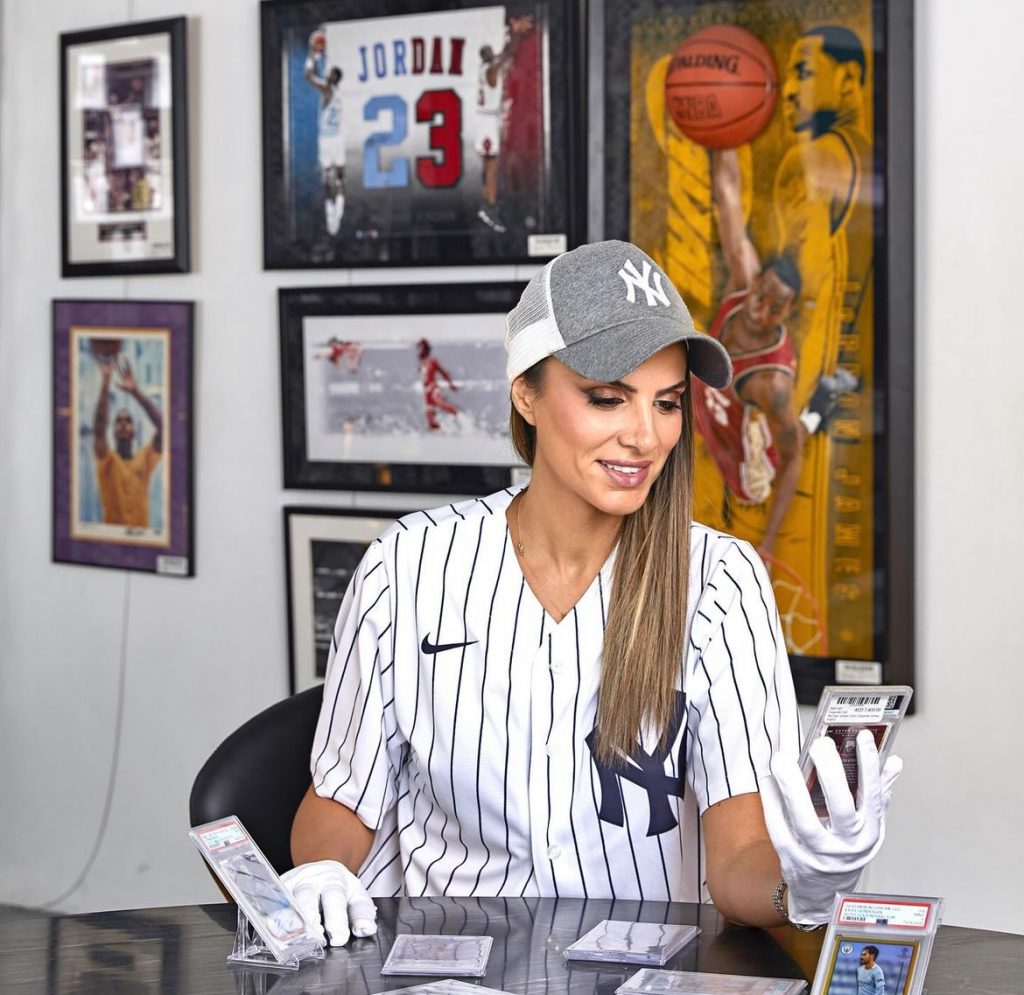
“Even now in Saudi Arabia, we see a country that is investing so much in sports and is opening a lot of doors. Now that I’ve done all of this in my career, it’s time to pay it forward to sports and capitalise on diversity.
“I do have an idea in mind though. Something that if I could accomplish then I would say ‘I’m happy to stop everything right now’. It’s an idea, a project that I won’t talk about, but it’s one person I’d like to interview in a certain set-up, and in a certain way and if it ever happens I’ll call you to let you know.”
Throughout our time together Nathalie tells us about her pride in being from Lebanon, discusses her career in basketball, the sacrifices she made and the role family played in supporting her. She takes us through her life on television, the challenges she’s faced and why meeting one of the greatest sports stars of all time remains the highlight of her life.
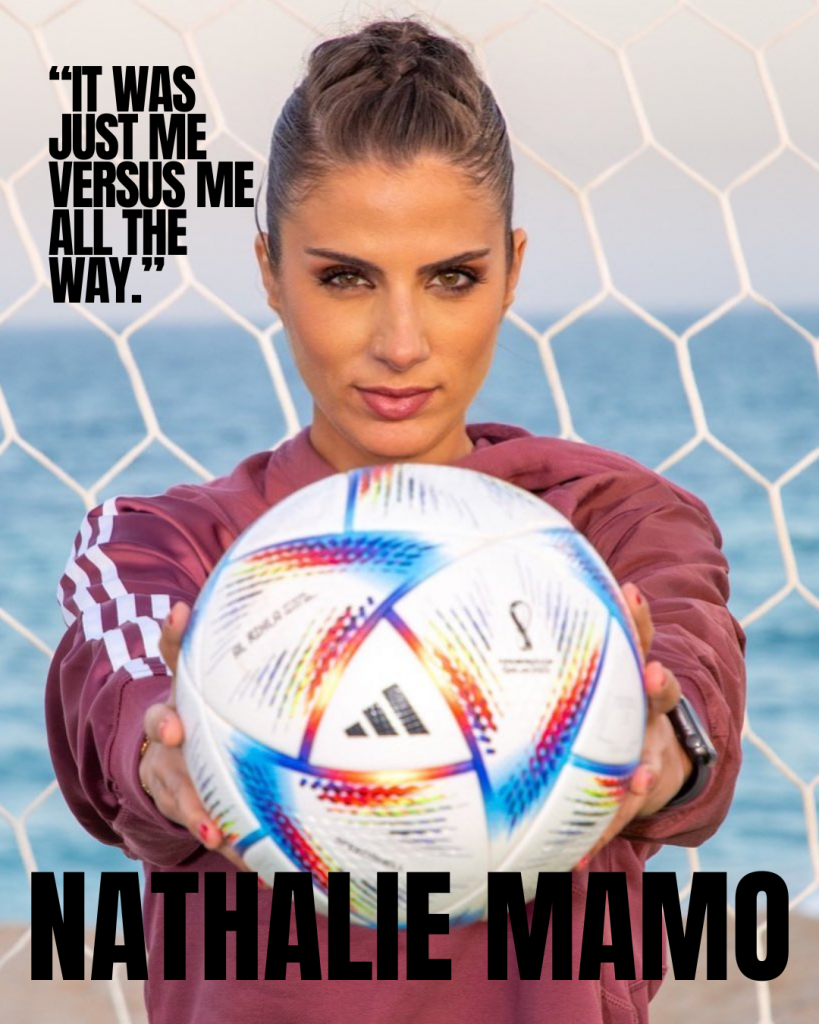
RESILIENCE.
I was born and raised in Lebanon. If you’ve ever been to Lebanon you will understand the attachment the Lebanese people have to their country. It’s a country where no matter how bad things get, Lebanese have always had a way to stand up and appreciate life.
In one of my recent speeches, I used to say that I left Lebanon at some point because I did not relate to the country and everything it represented.
But in the past few years after watching everything Lebanon has gone through and how this country is still on its feet, I can’t but relate to the resilience of the Lebanese and their will to make it in life regardless of how much circumstances put you down.
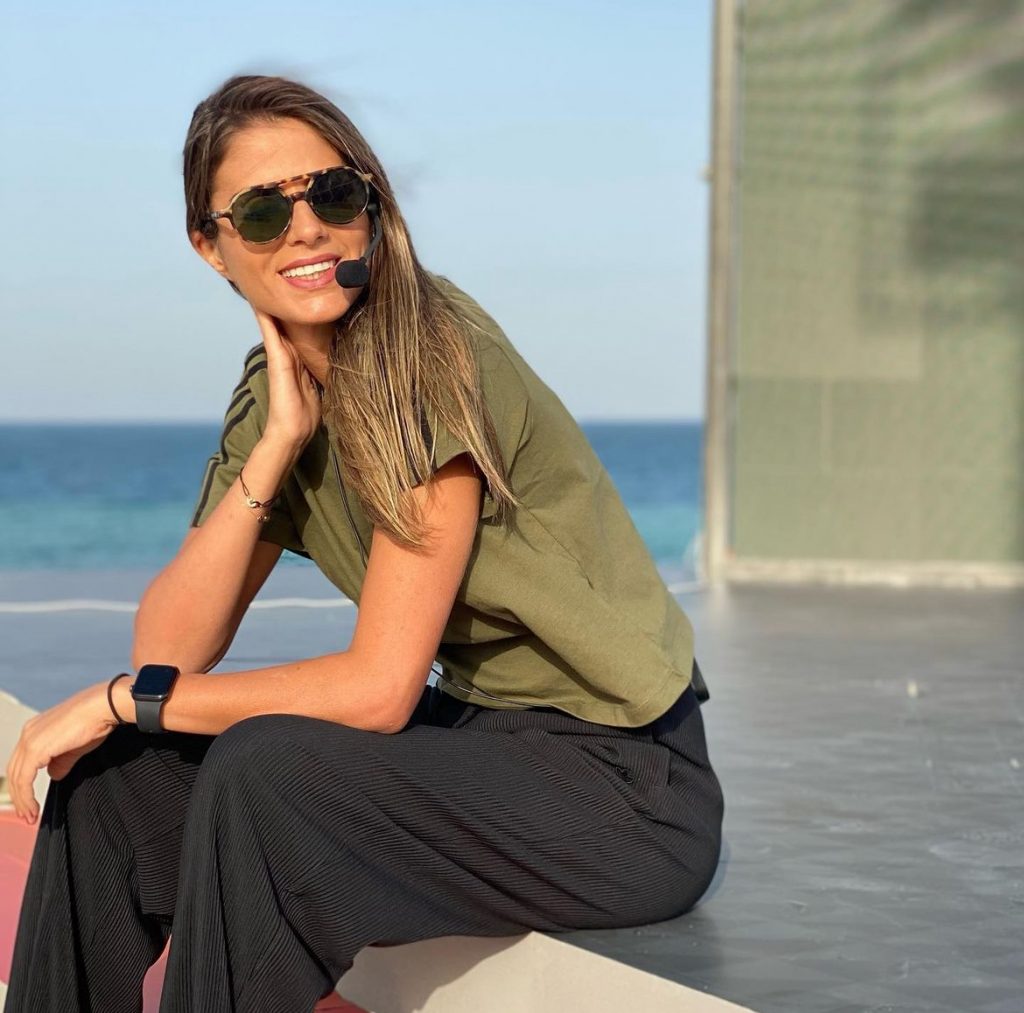
THAT WAS BASICALLY MY LIFE. THERE WAS A LOT OF BASKETBALL.
I was born and raised in a family where basketball was everything. My grandfather was a basketball player, a national basketball player, then it was my father. And then it was me.
When I was a little girl, around eight or nine years old, I was in a club with boys and I was pretty shy. I used to be too shy to play basketball in front of them, so I would watch them play, and then go back home and imitate and practice everything they did.
Doing that each day accelerated my development so fast. So much so, that by the age of 11 years old, I was the youngest player to ever play First Division basketball in Lebanon. I would then become the youngest to join the women’s national team.
At some point in my life, I was playing for the women’s national team, for the under-18 national team, for my team, for my school’s team. That was basically my life. There was a lot of basketball.
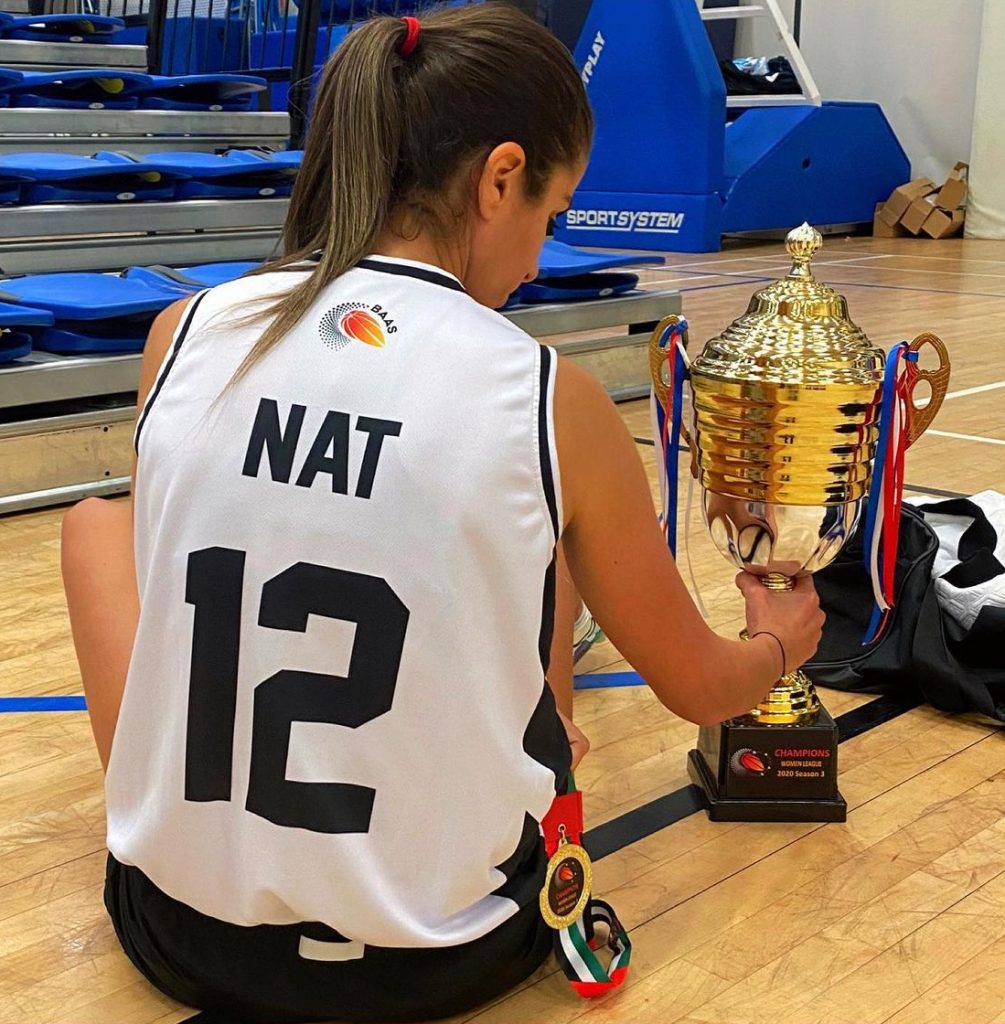
IT WAS JUST ME VERSUS ME ALL THE WAY.
I remember, as soon as I signed my first contract with basketball, I was 11 years old. And I remember my mum telling me ‘If this is going to affect your grades at school, we’re stopping basketball.’
I was an average student, but from that moment on, from that sentence on, I graduated first from school, then from high school with a high distinction degree. I wanted to be the best at everything. It’s not like I’ve ever set a target and that I’ve been competing with anyone else. It was just me versus me all the way.
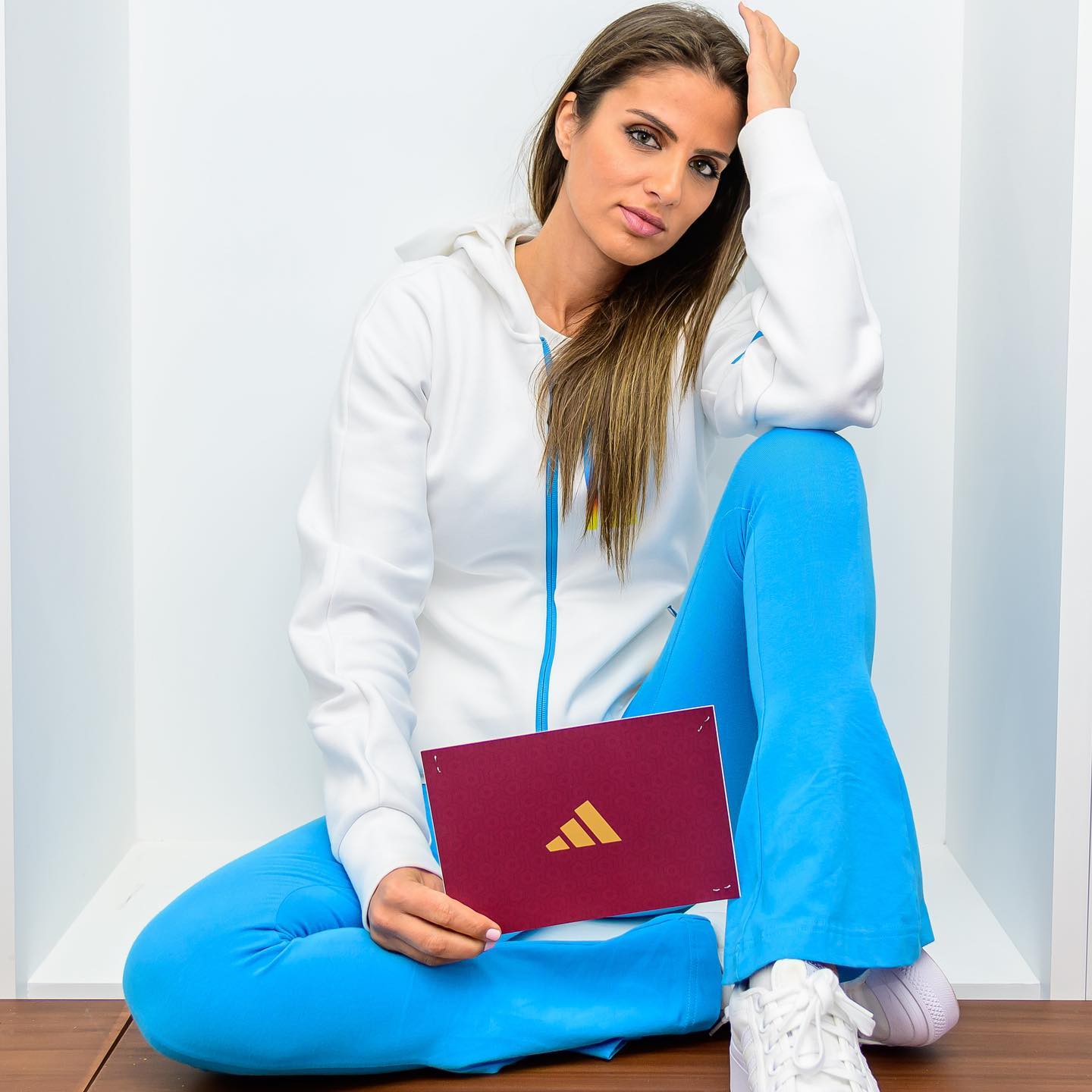
I always say something when I’m speaking to people around the projects that I do, I always tell them that sports has the power to make you a champion in anything you choose to do in life.
When you practice sports properly, and you try to really go far with it, it can make you a champion in life, even if you don’t become a champion on the court. Because there’s so much that sport offers you that you can take with you in life.
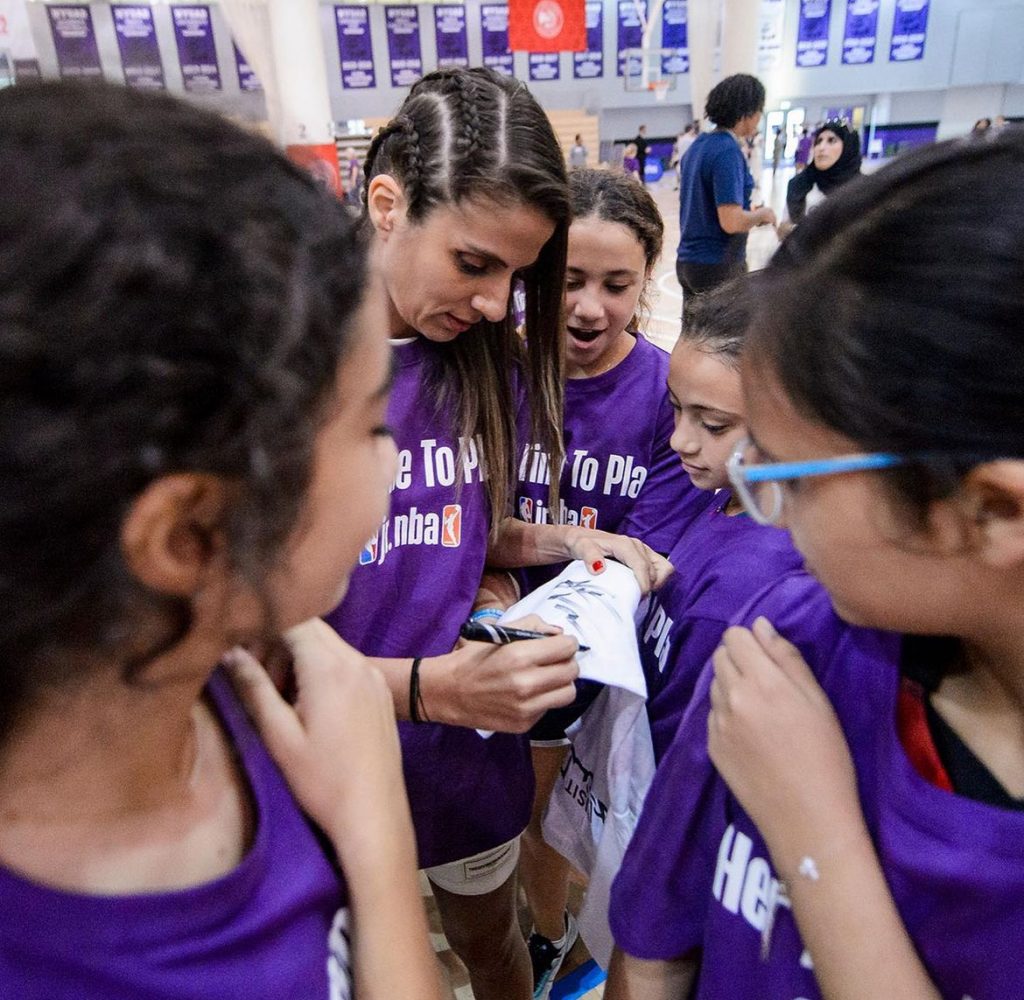
There is the dedication, the commitment, the early hours, the long hours, the principles, the commitment, the respect, everything, all of them. The mental strength, all of that, take it even if you’re the worst possible player because if you apply it to anything you want to become, there’s no way you’re going to give up or stop trying and eventually, you’re going to make it.
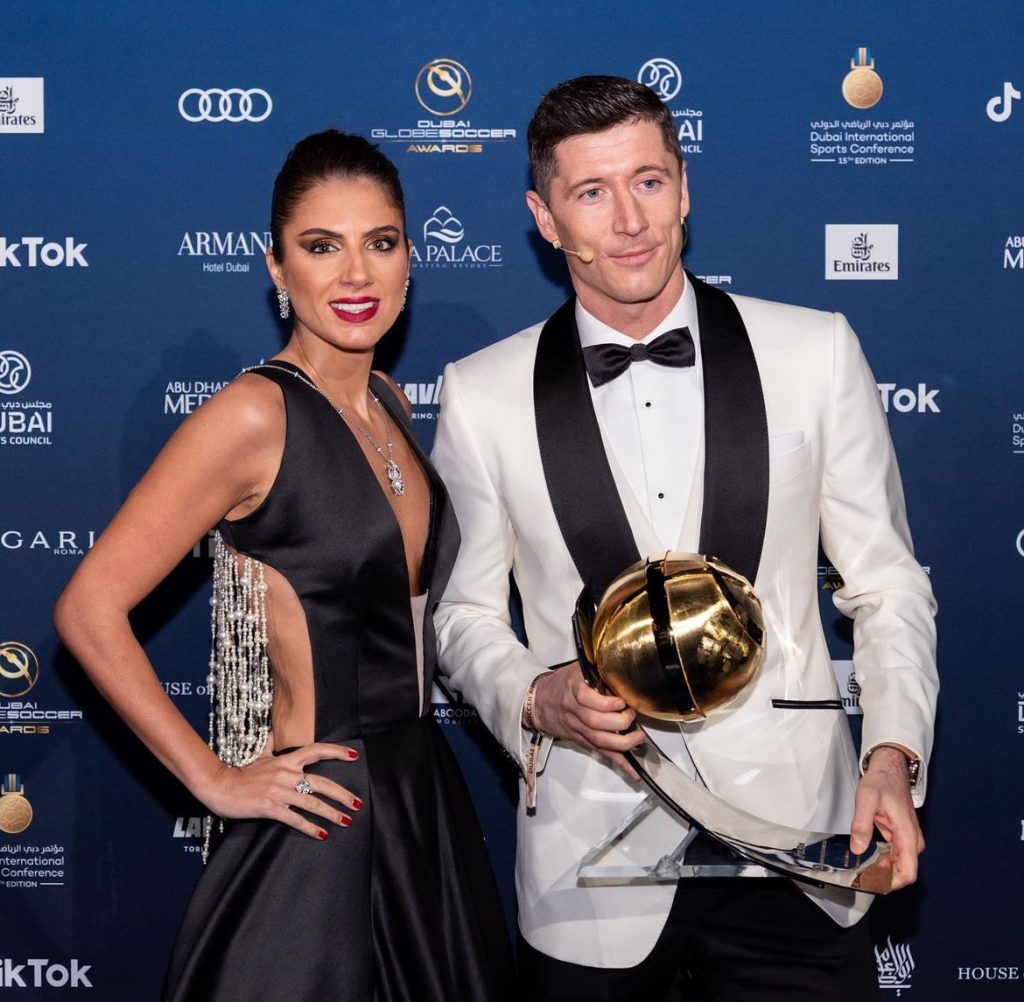
THE MVP IN MY LIFE WAS MY MOTHER.
The difference between sports in this part of the world is that you don’t have to give up on your education to do sports. So I was not fully professional to the point where I had to give up on my education or stop going to university to do sports.
When it came to sports I might have inherited the genes from my father or my grandfather, but the MVP in my life was my mother.
She was the one driving me to practice every single day of my life. From the age of 11 until I started driving, she drove me to practice, every single day.
I remember there was a time in my life when I played for the national team and I was also going to school. She would pick me up and take me out of school for two hours so I could go practice with the team and then I would leave practice and she would take me back to school, and I would finish the day and then go back home and then back to practice again.
My mother has played an immense role in my life and she never missed a training session or a game. I was blessed to be supported by my entire family: my grandmother, my father, my sister and my aunt.
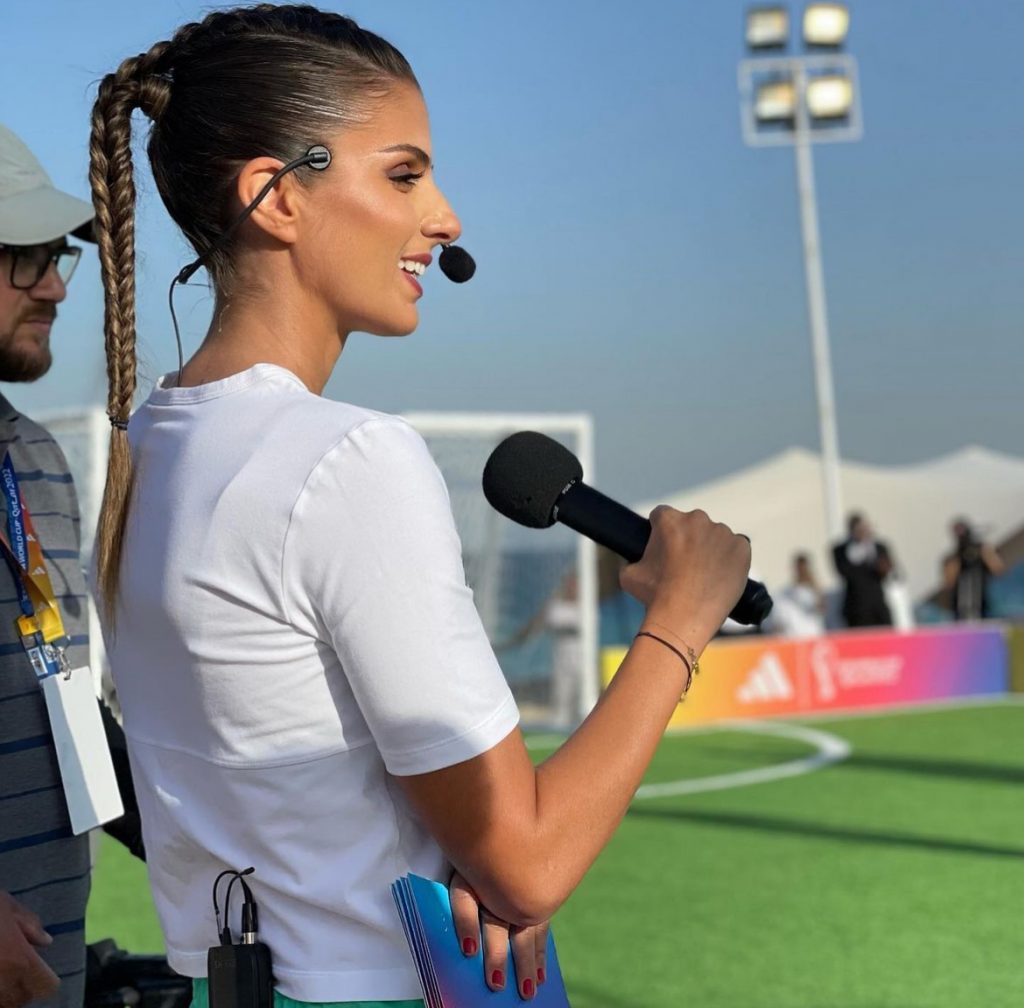
LET’S GIVE IT A SHOT.
I always say that this game shaped me a lot mentally. And the person I am today is thanks to everything this game has offered me because my career on TV started because of this game.
I used to go on TV a lot as a guest because of the championships I won at such a young age. Everybody wanted to see this cute little girl, who played in the national team, go on TV and talk. So I grew up going on a lot of shows until I was eventually offered a job.
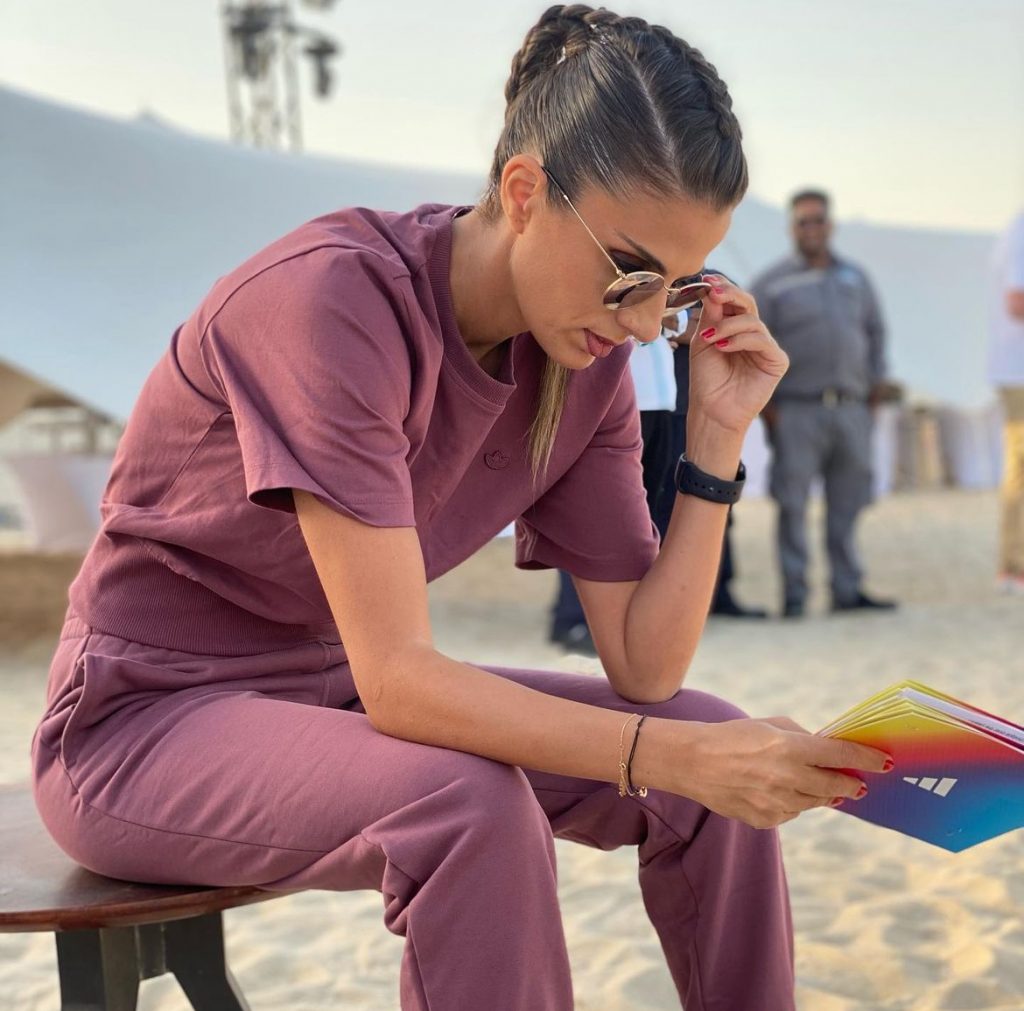
I was I was 21 or 22 and I had graduated with a completely different bachelor’s degree. I’ve never studied journalism or sports presenting whatsoever. However, I was asked to be the first woman to present sports in Lebanon in 2009. It was something I’d never done before, I never studied and I barely spoke Arabic. At first, I turned it down, but then they insisted so much and I said, ‘Let’s give it a shot.’
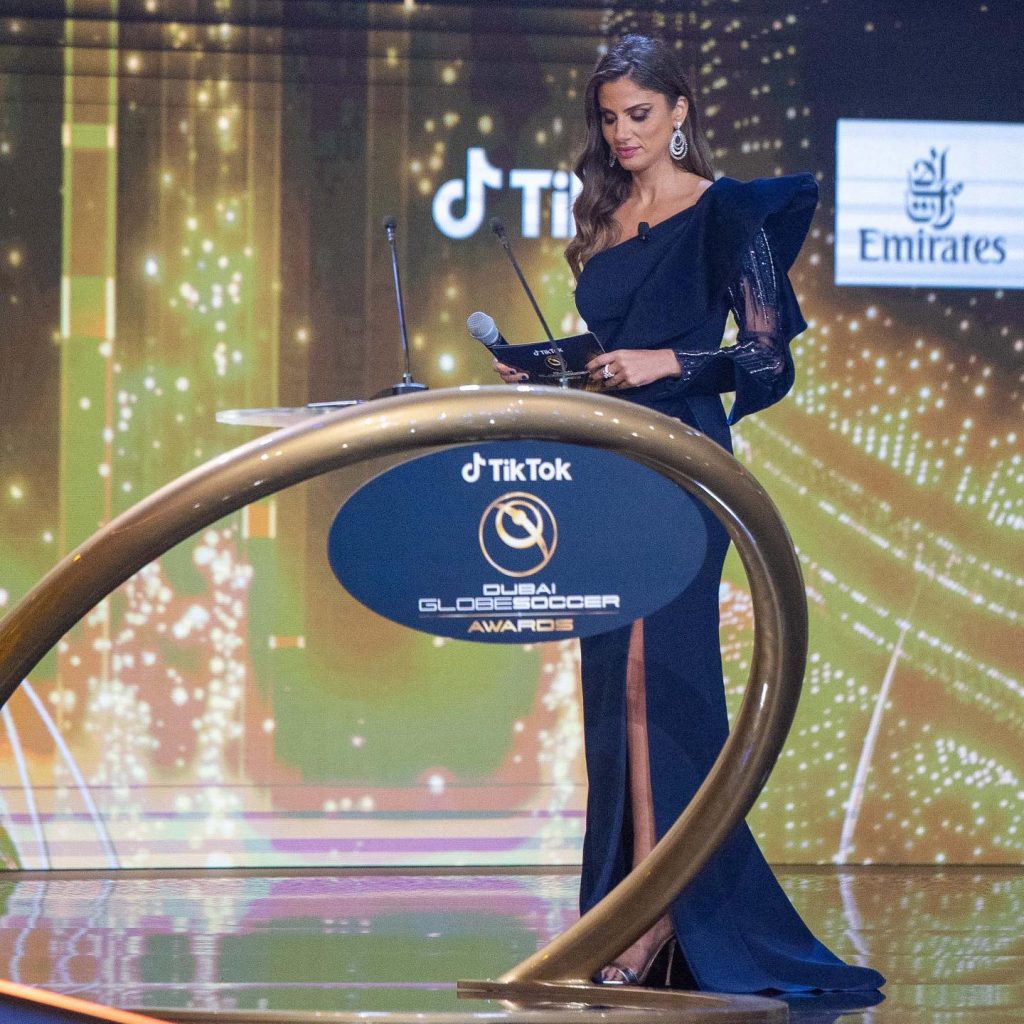
Back then though I was not the best Arabic speaker. I am somebody who has this very Frenchie kind of accent in the way I speak Arabic. But then that weakness over the years has become my strength because I’ve become known in the Arab world for my accent and my ability to present in different languages. So my weakness in many ways has become my strength and my identity.
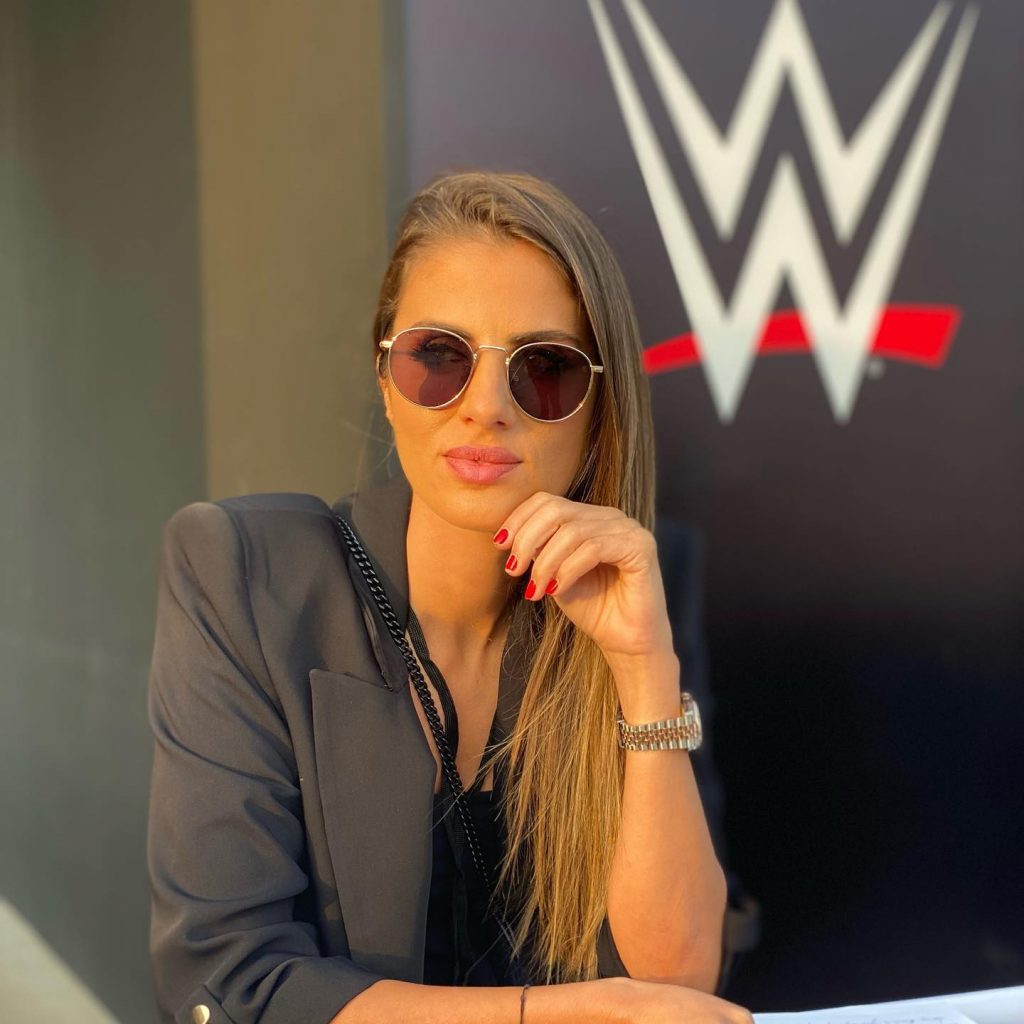
BEING ON STAGE IS LIKE MY BASKETBALL COURT
I’m a bit of a shy person but there’s something that happens as soon as you hold the mic, as soon as you get on stage, as soon as that little red button and the camera turns on, you just transform. Being on stage or on air is like my basketball court.
So honestly if somebody had said do you think you can achieve all of this? I’d have said no. But I knew with the mentality I had as a basketball player, as this person who used to wake up at 5 am to go work out, to go train, that I could go very far with anything I set my mind to.
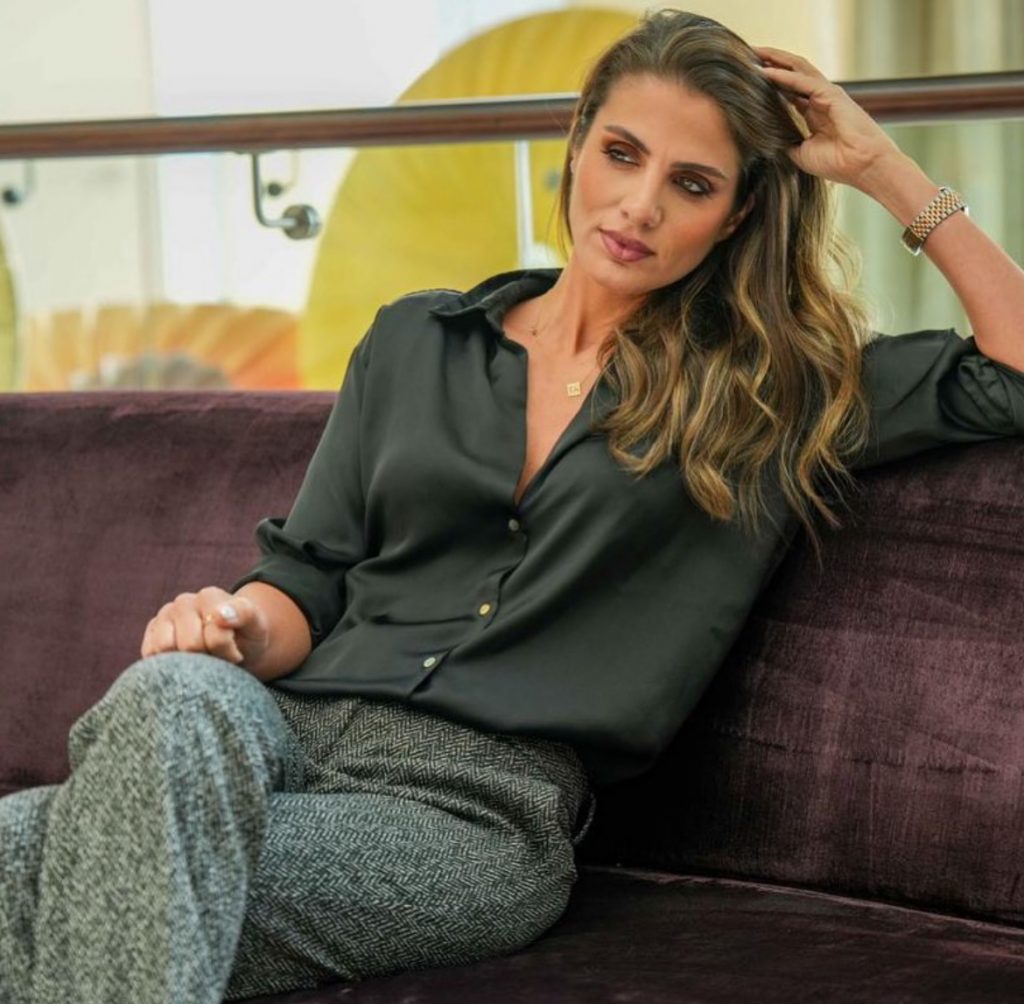
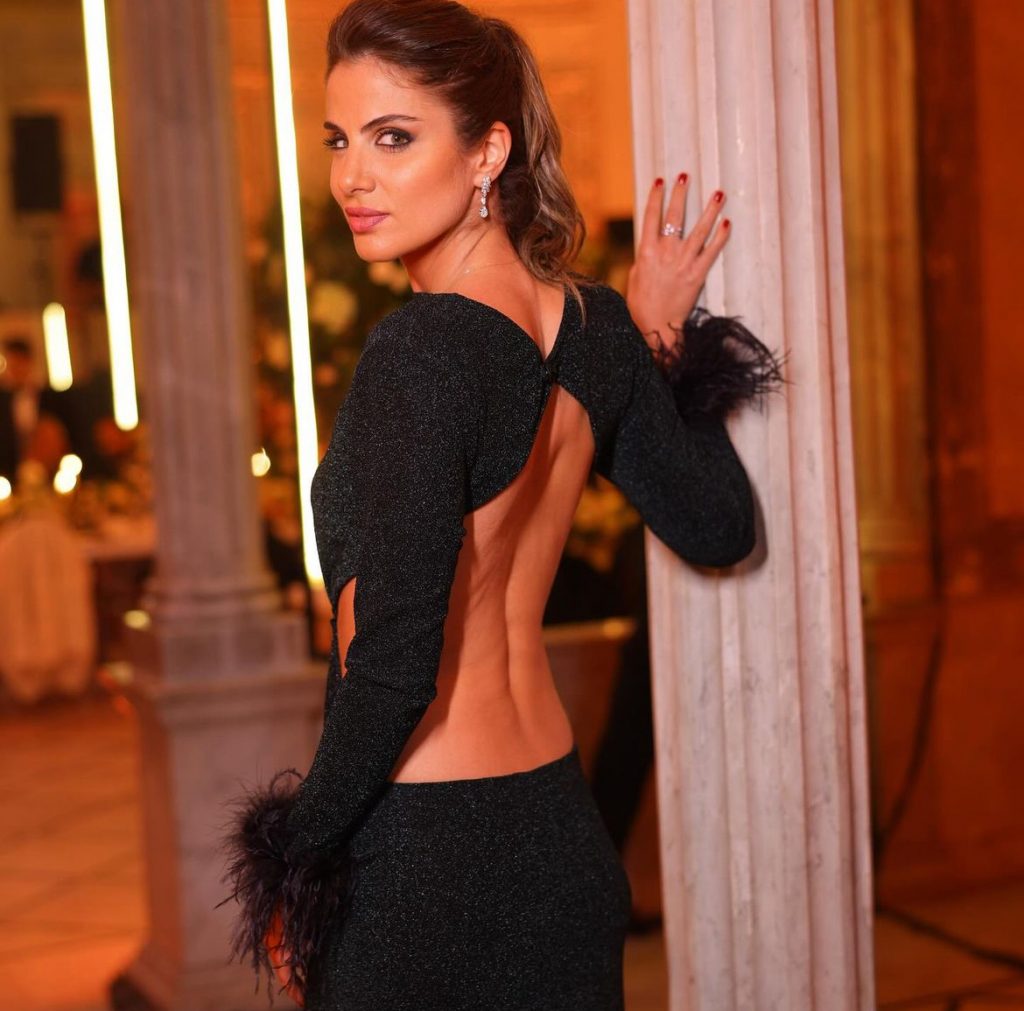
THERE WAS AN OPPORTUNITY THAT I NEEDED TO GRAB AND TO DO THAT I HAD TO SACRIFICE MY CAREER ON THE COURT.
It’s so common that when an athlete stops playing their sport, there is nothing that replaces it. You can go through depression, you can get this feeling of emptiness, you can go through a dark place.
You can see that in a lot of players when they stop, they struggle. They struggle because the sport somehow validates who they are, and once it’s not there anymore they feel like they’ve lost a certain part of their life that’s not replaceable. Even if you pick up another career, It’s hard to deal with that emptiness once you stop.
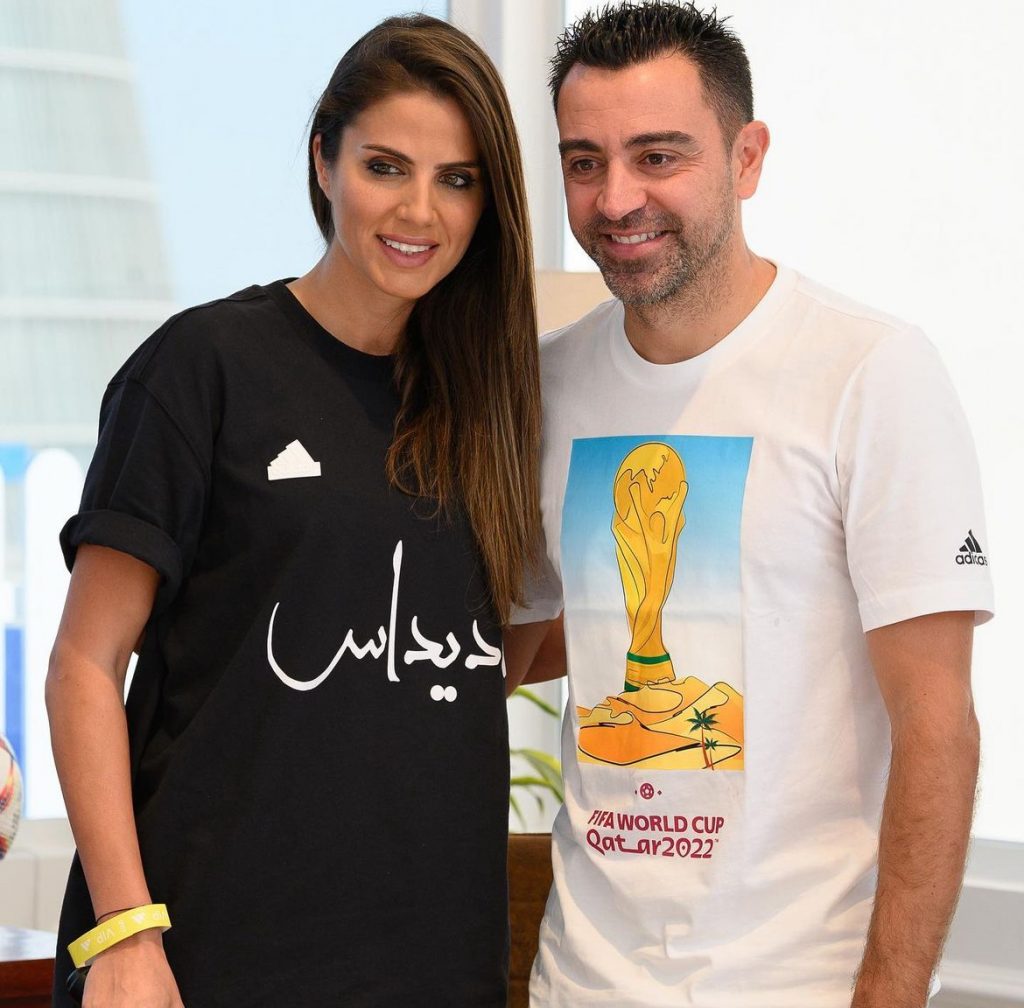
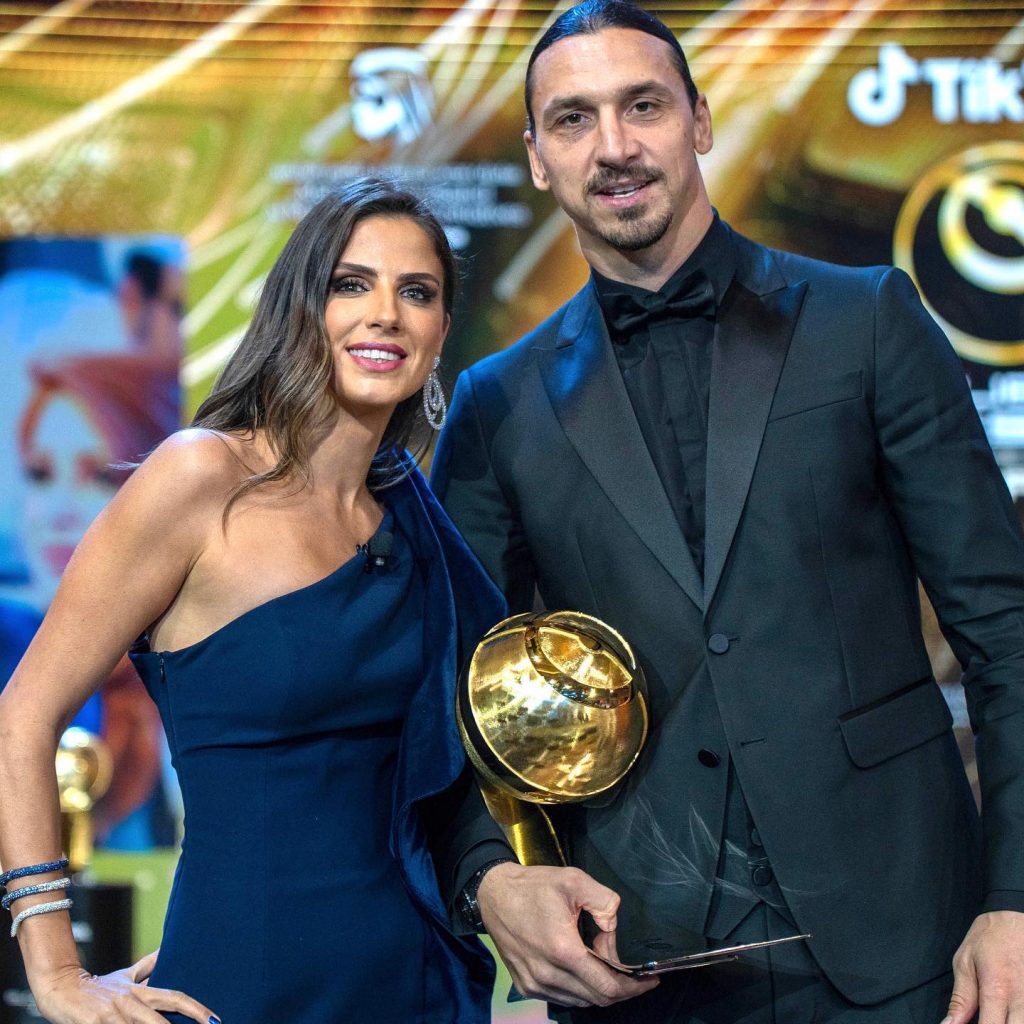
I felt like I had given as much as I could to the sport and I had also taken everything I could have dreamed of, and it was time for me to explore something else.
I never thought after retiring I would be the first Arab woman to present the Globe Soccer Awards, work for the NBA, be the face of the WWE in the region, or win the Sports Media Personality of the Year. Had I not stopped at that time, I wouldn’t be here now. There was that opportunity that I needed to grab and to do that I had to sacrifice my career on the court at the time that I did, even though I was still 26 years old and could have played for another 8 years at least.
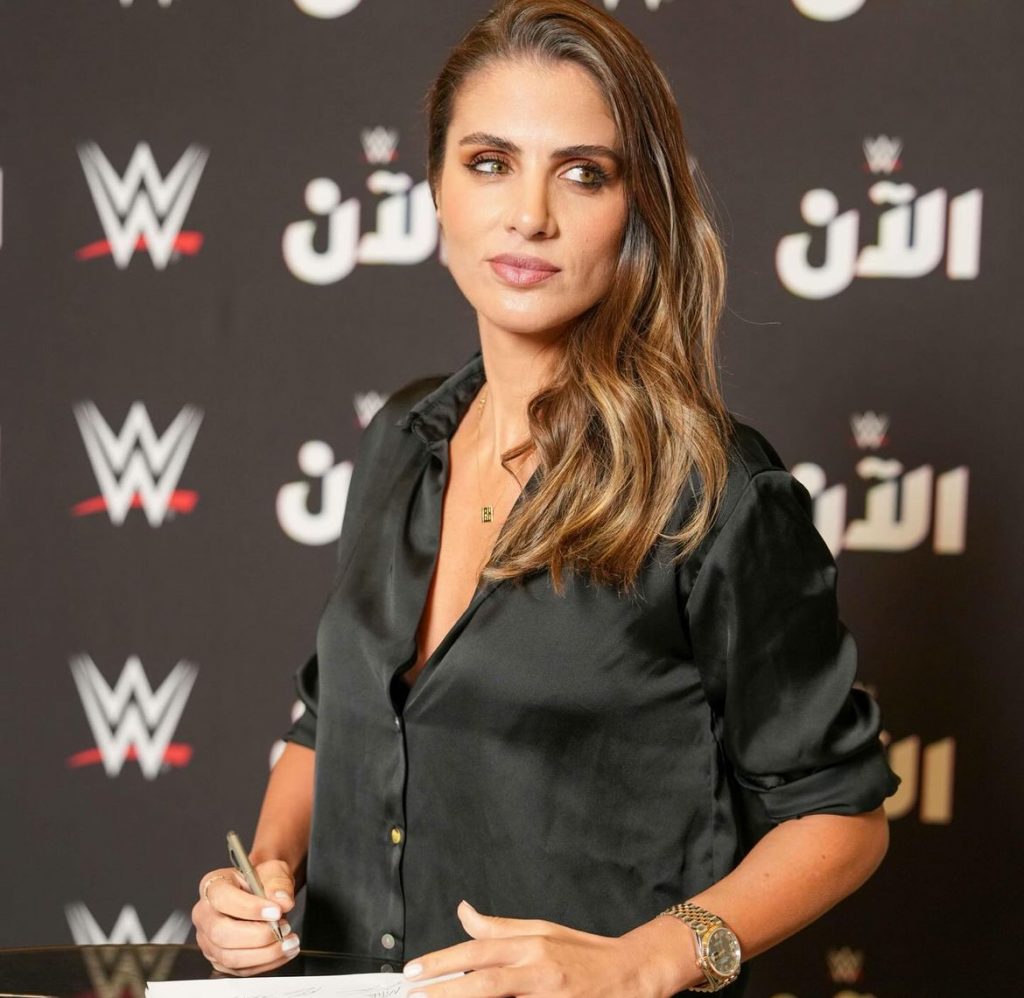
RIGHT NOW THERE IS NO DIFFERENCE BETWEEN WOMEN AND MEN WHEN IT COMES TO BROADCASTING SPORTS.
When I first started it was in 2009 I was the first female sports news presenter in Lebanon, but six months after I started every channel in Lebanon wanted a female face on TV. I felt from that moment everything started accelerating
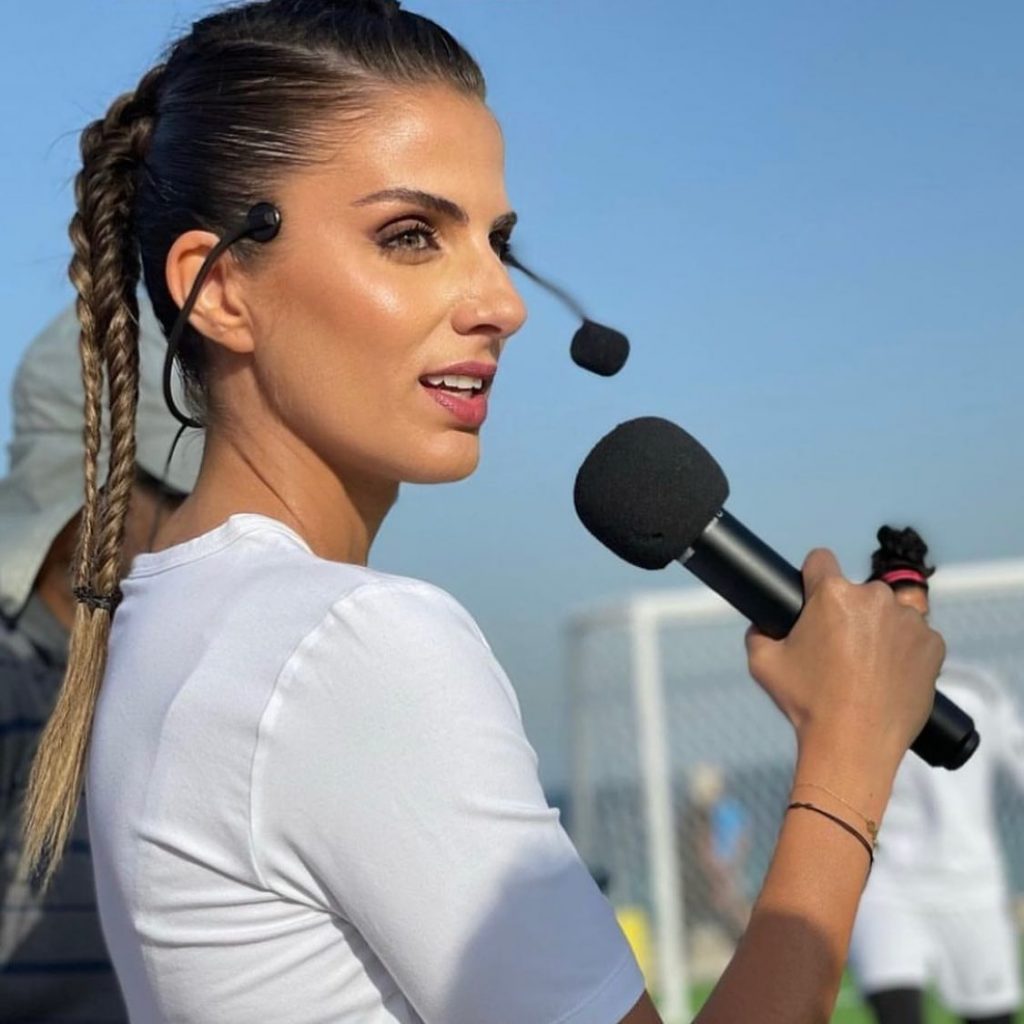
Now you see women commentating, you see women presenting, you see women analysing and I really feel like right now there is absolutely no difference between women and men when it comes to broadcasting sports.
In the beginning, I used to face a lot of questions ‘What do you know about sport?’ When people see a woman’s face on TV, you felt like you had to prove yourself. And you have almost had to show them that I’m much more than just a pretty face.
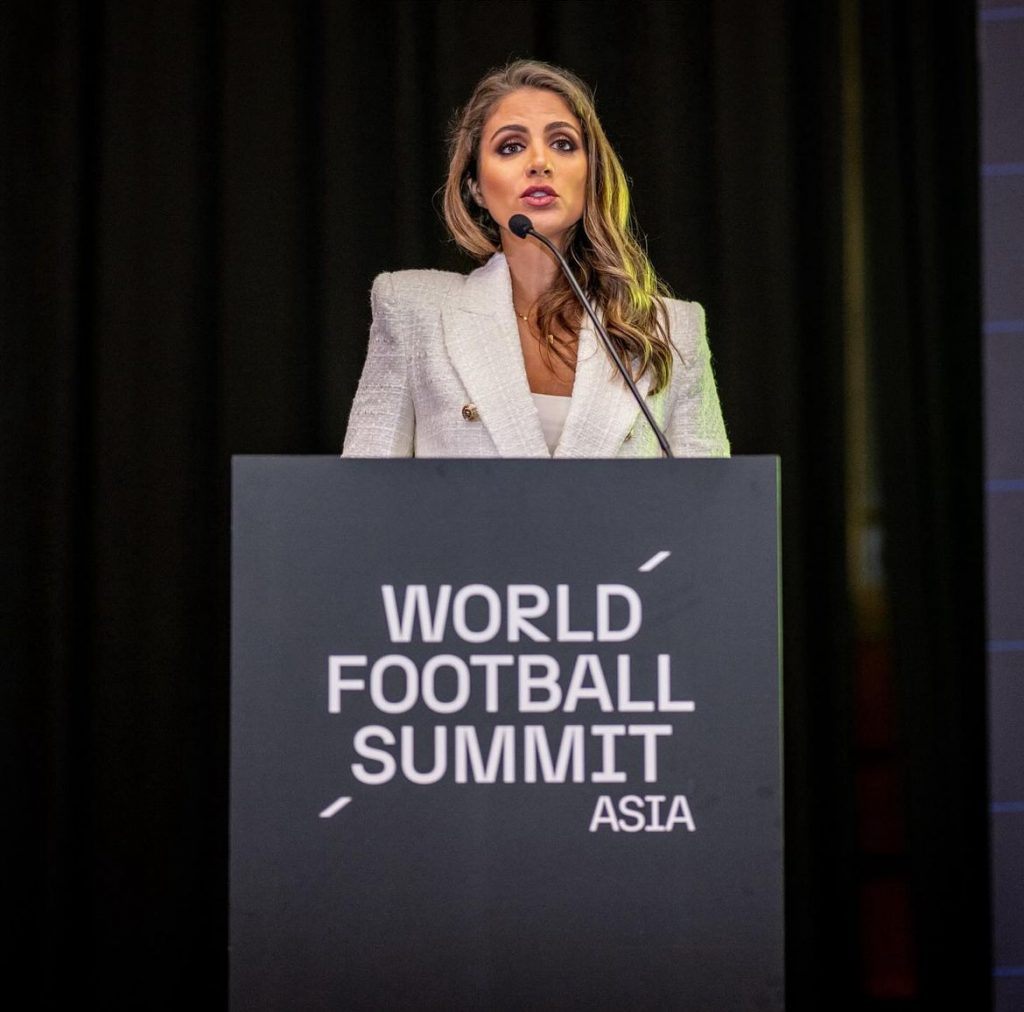
This way of viewing things has tremendously changed and that is thanks to a lot of amazing women who broke so many barriers, especially in this part of the world and played a big role in changing this mentality and proving that actually a woman can understand sports, she can talk sports, analyse sports, commentate on sports, present sports and work in sports.
I always say that the most unmerciful crowd in the world are sports fans. They are very critical. And this makes the job even harder.
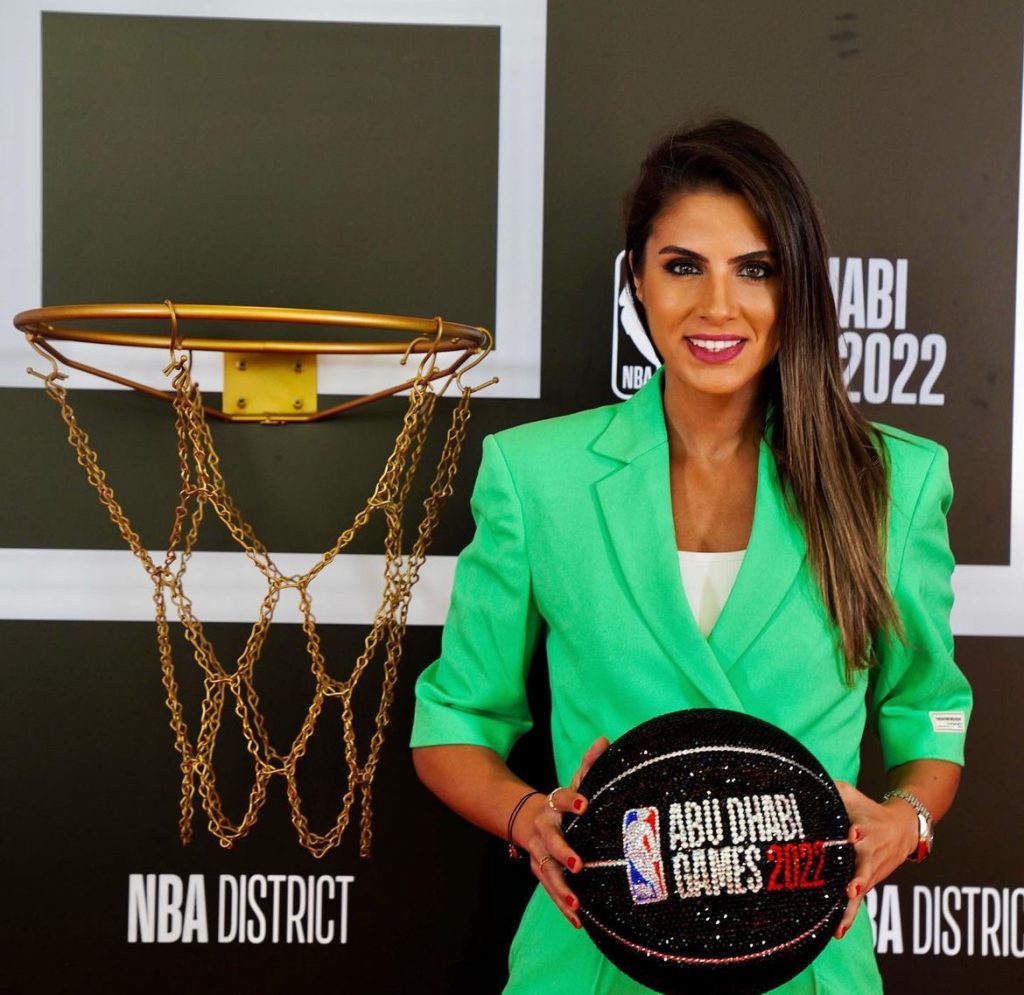
THAT IS A DAY I’LL NEVER EVER FORGET
I’m blessed to have had the opportunities that I’ve had. And the celebrities, the stars, the interviews, and all of that. I never take all of this for granted. Because every broadcast could be your last one.
I’ve had the chance to meet and work with Maradona, Ronaldo, and Ronaldhino. I have a list of names and players, and each has had its certain place in my career and how I felt at that moment.
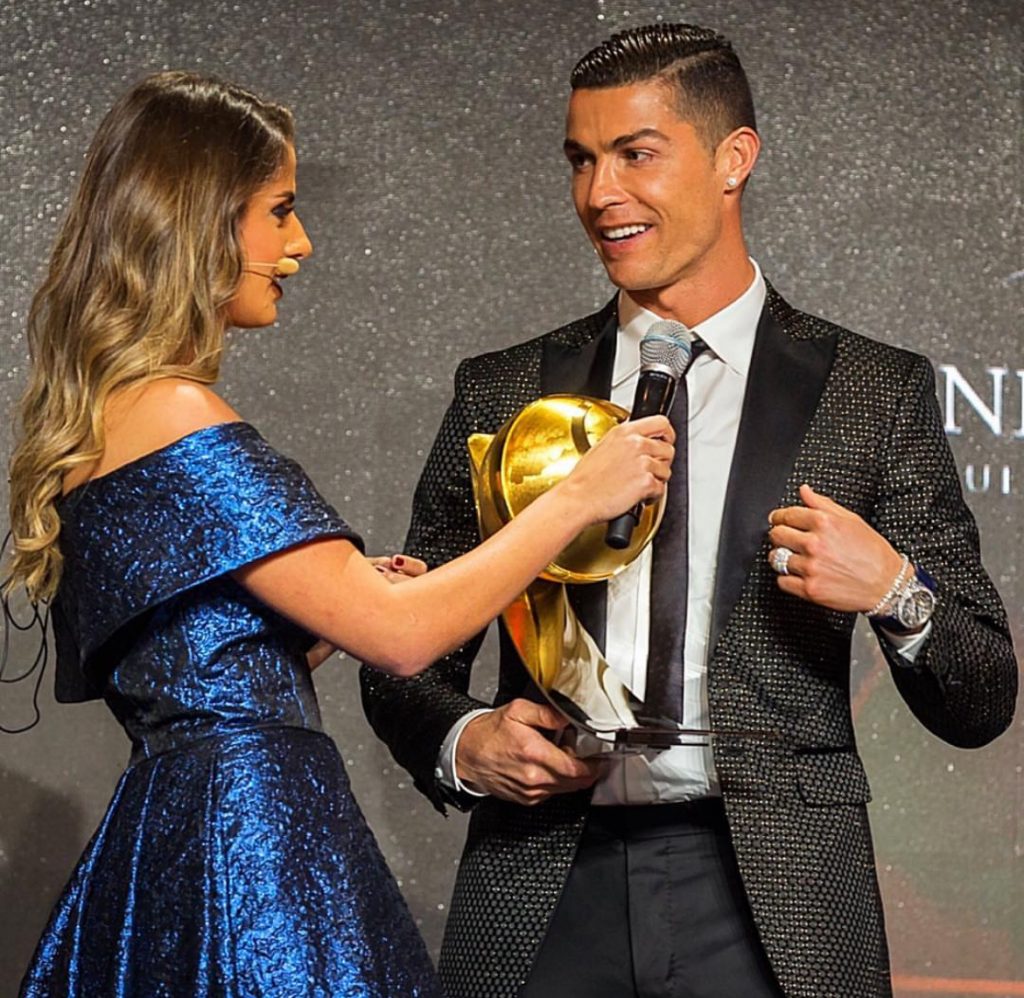
My favourite moment though of everything I’ve accomplished in my life, was before I even became a sports presenter. It was when I was 16 years old. I was in Santa Barbara, and I was at the Michael Jordan Flight School and it was a moment I shared with Michael Jordan. This has remained the best thing that happened in my life and my career.
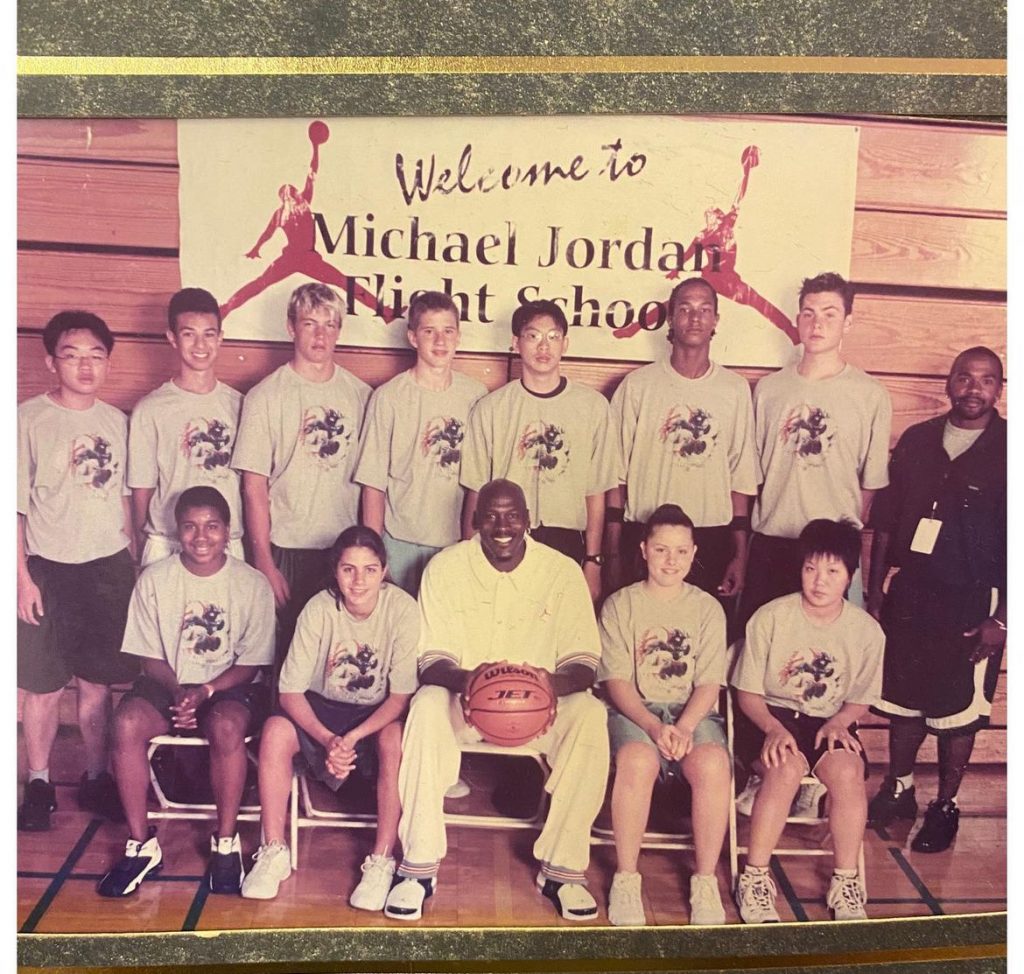
I remember in that camp there was a also young player who was 18 years old, who was coaching and training at that time, high-fiving everybody. I saw him for seven days, day and night. Everybody was talking about how he was going to be drafted into the NBA. I never cared though because I was there for Michael Jordan and no one else. And that person was LeBron James.
I actually have a very rare picture of both Michael Jordan and LeBron James from 2002 (before LeBron was even drafted.) I’ve never posted this picture anywhere, I want to find the right way to do it. After all, it’s a picture you wouldn’t find anywhere.
There was a moment during the camp when I was sitting next to Michael Jordan for a group picture. I was wearing the new T-Mac 3 white shoes, and I was sitting next to him, and he looked at me and just stepped on my foot and said, ‘T-Mac huh?’ I was like 16 and I remember saying, ‘Oh, I forgot my shoes in Lebanon’, something like that. He then started talking to me about Lebanon and asking me all about life there.
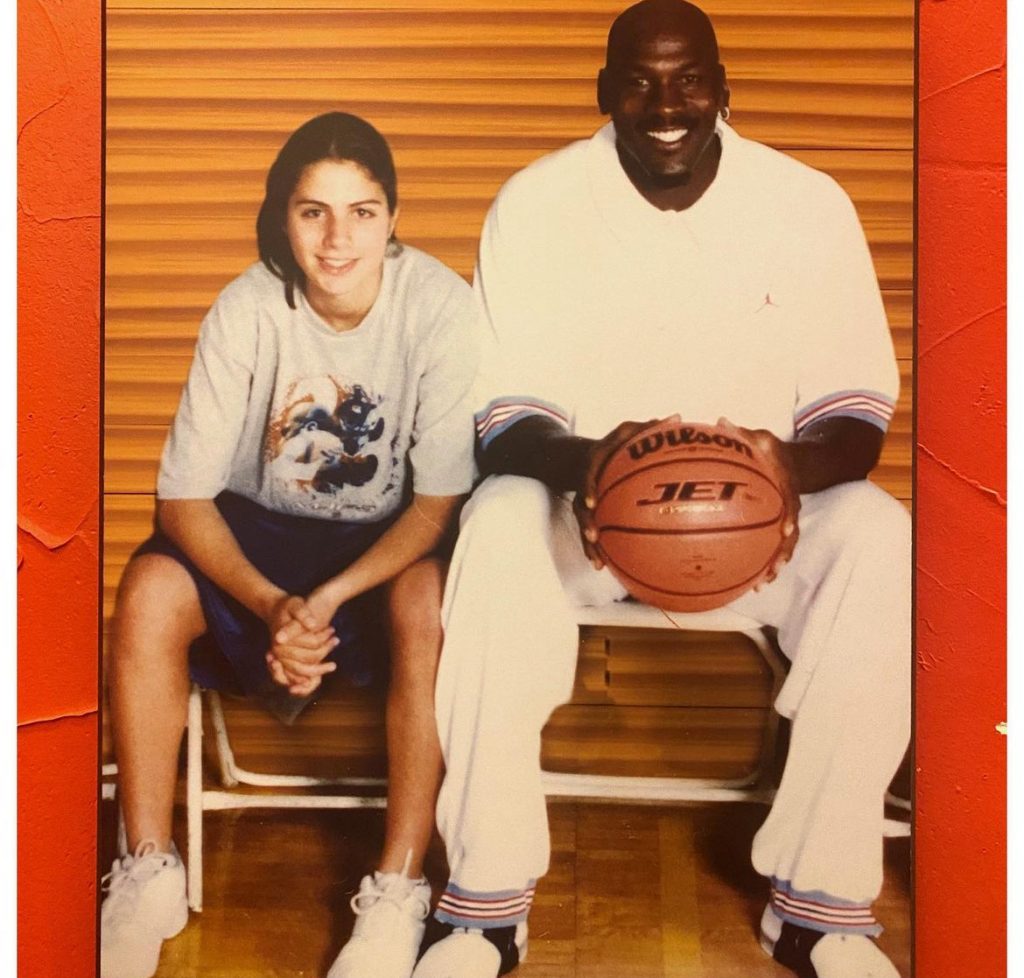
Later that day, he was giving a talk about free throw shots, and he chose three players from the camp to make a free throw shot and if you scored you got to take his shoe. I was one of the people he chose but I was so nervous and he was standing next to me making noises on the mic. The whole time all I could think was, ‘That is Michael Jordan.’
I never scored that shot, but that is a day I’ll never forget. Funnily enough, I got to meet Tracy McGrady last year and I told him that story and what Michael Jordan did to his shoe and it was funny that I had the chance to tell him that many years later.
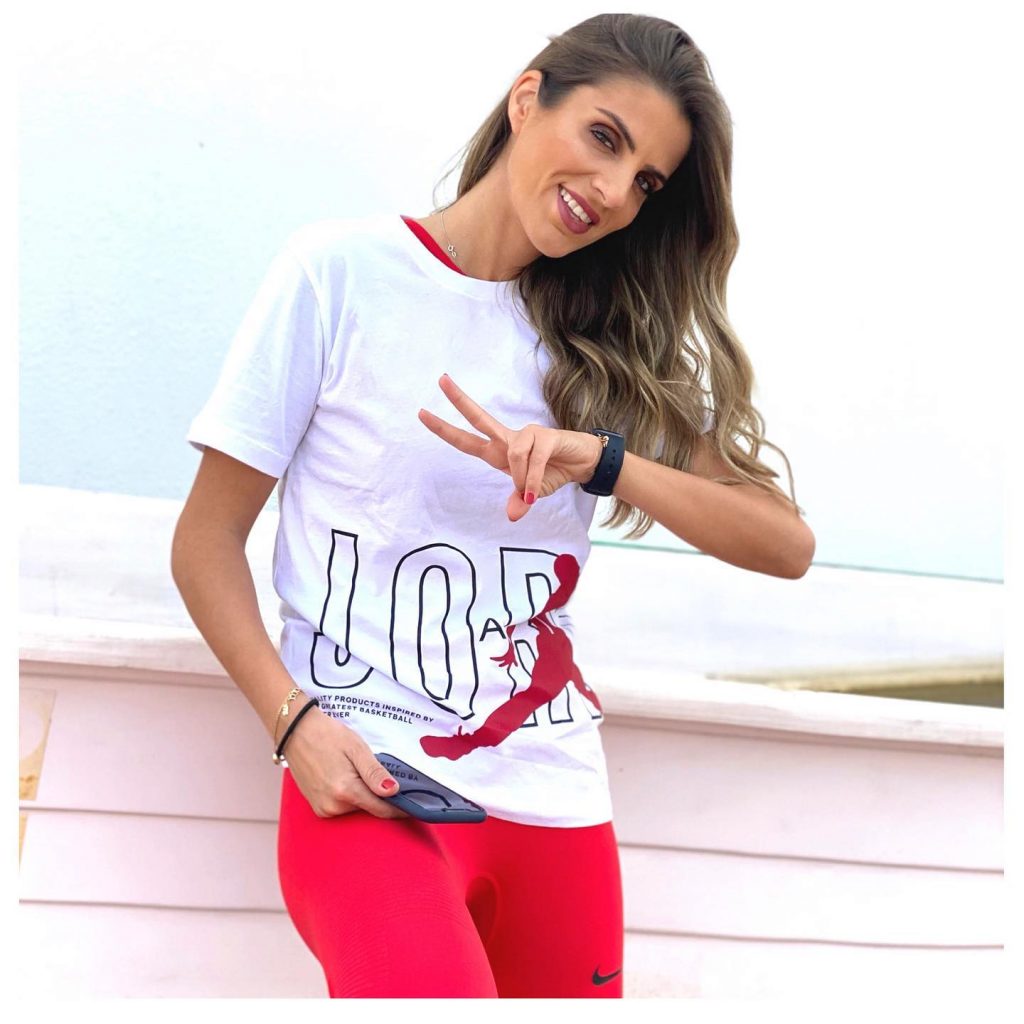
I MISS IT EVERY DAY.
After I retired, I was always scared of playing basketball because of the fear of missing it. I did not even enter a basketball court for four years. I knew I stopped way too early and had so much in me left to give but it was a sacrifice I had to make then and I have no regrets whatsoever.
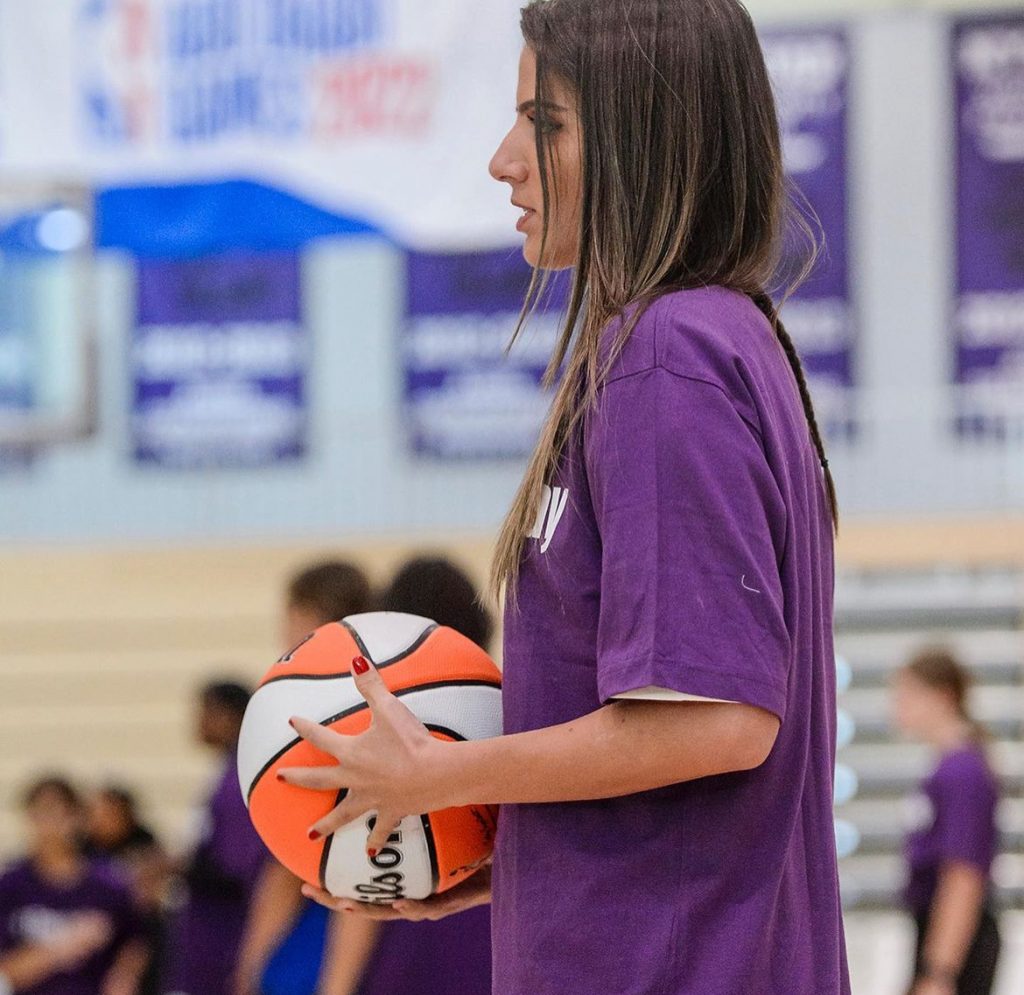
What I miss more than the game though is everything that comes with it. It’s the things you experience and live with your teammates. It’s the trips, the atmosphere, the families, the hunger to win and the feelings you get on the court. It’s hard to even explain that. I always say it’s a language that you cannot explain to someone who hasn’t done sports or played sports.
I do miss it. I miss it every day, but at the same time, I wouldn’t change anything.
In my playing career, I was blessed to be part of an amazing team of players where we won and shared so much together. We stayed undefeated in the Arab World and West Asia for 10 years. One of the best moments in my life was winning the Arab Championship. We were in Morocco in 2004. It was a three-point buzzer-beater, that made us win against Tunisia. It was an amazing moment for all of us and it’s one of so many that I will never forget.
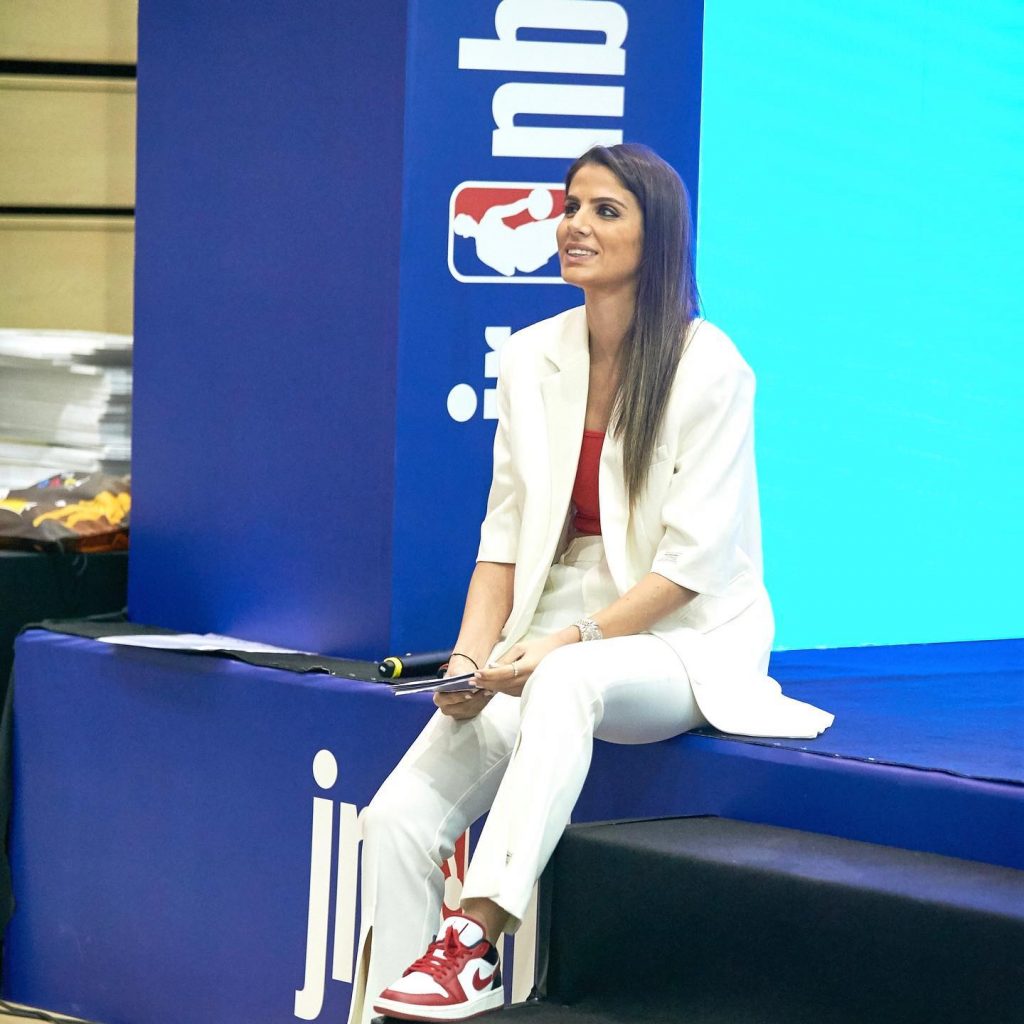
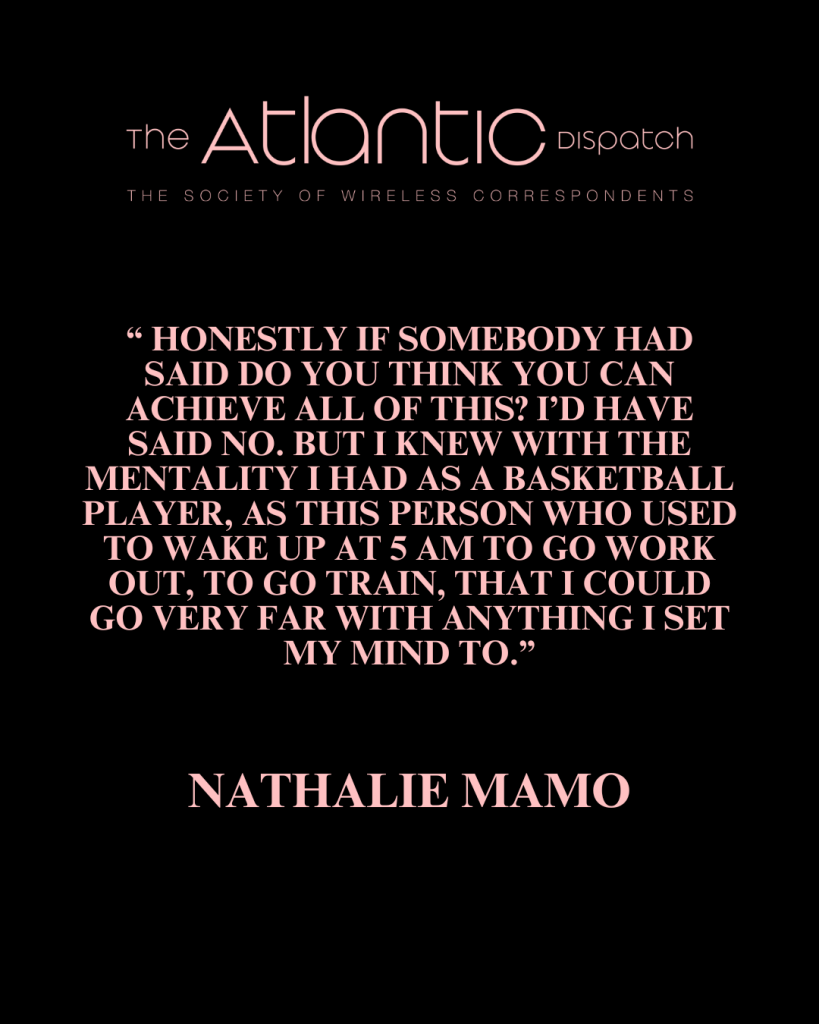
With all our thanks to Nathalie Mamo for her time.
To learn more about Nathalie or to follow her on social media please click here.
